Obesity
How to submit an article:
- Registered users can submit any published journal article that has a unique DOI (Digital Object Identifier) name or link to Research Hub.
- For example, you can paste the full DOI link:
https://doi.org/10.1109/5.771073or just the DOI name:10.1109/5.771073into the field above and click submit. - The person who is first to submit a valid article to Research Hub will forever be credited for it, and every article submission earns you +6 Research Points.
Also known as: Anti-obesity, Overweight, Weight Loss
Related Topics
Published research studies are articles that present the findings of original research that has undergone a peer-review process and has been made publicly available in scholarly journals, books or other media.
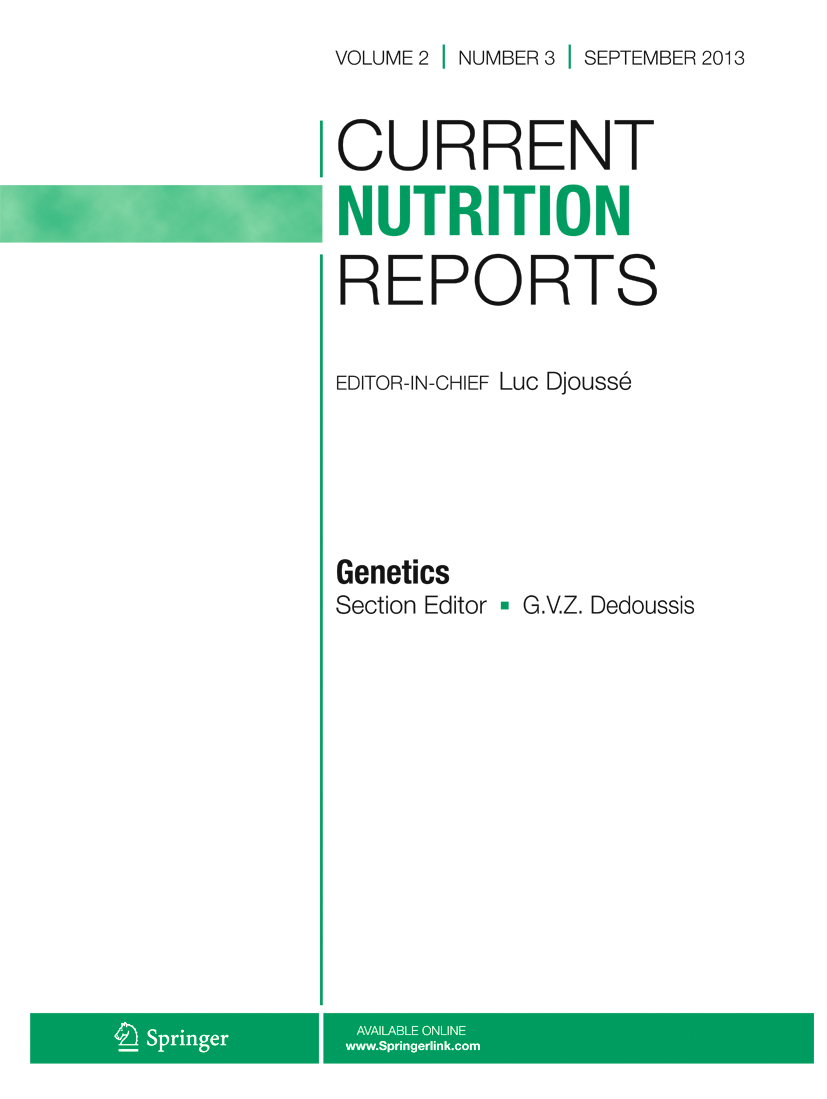
Ziziphus jujuba (Jujube) in Metabolic Syndrome: From Traditional Medicine to Scientific Validation
2024 Oct 01 Current Nutrition Reports Ghasemzadeh Rahbardar M, Fazeli Kakhki H, Hosseinzadeh H
Review Article Obesity Type 2 Diabetes Metabolic Syndrome High Blood Pressure JujubeZiziphus jujuba and its main components, lupeol and betulinic acid, show promise in treating complications of metabolic syndrome, including diabetes, obesity, and hypertension.
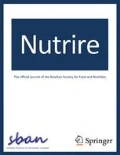
Nutritional and health-beneficial values of almond nuts consumption
2023 Nov 02 Nutrire Ouzir M
Review Article Cardiovascular Disease Cognitive Function Almond Type 2 Diabetes ObesityAlmond consumption has beneficial impacts on cardiovascular diseases, diabetes, obesity, and it can improve cognitive performance and protect against skin aging.
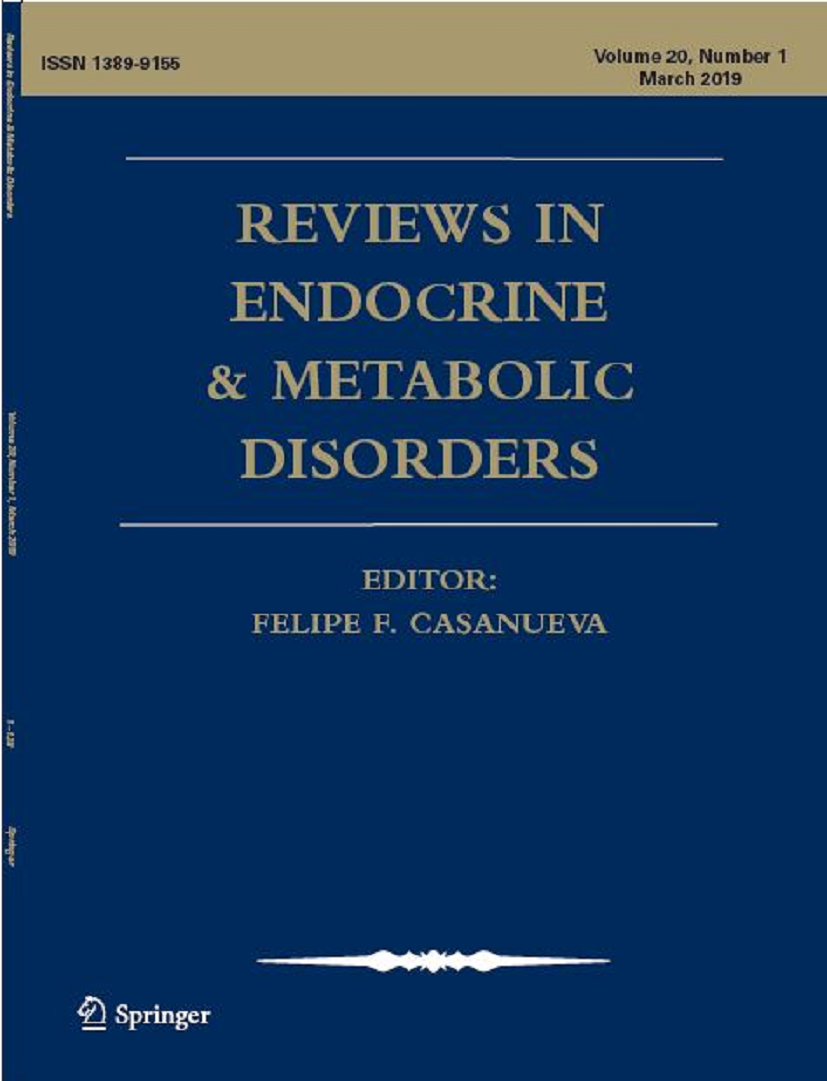
Circadian alignment of food intake and glycaemic control by time-restricted eating: A systematic review and meta-analysis
2023 Nov 22 Reviews in Endocrine and Metabolic Disorders Rovira-Llopis S, Luna-Marco C, Perea-Galera L, Bañuls C, Morillas C, Victor VM
Time-restricted eating (TRE) demonstrated no significant effect on fasting glucose overall, but it did reduce HbA1c levels and fasting insulin, with a tendency to decrease HOMA-IR. The timing of food intake was identified as a crucial factor, with early TRE (eTRE) significantly reducing fasting glucose levels in subjects with overweight or obesity.
Systematic Review Meta-Analysis Intermittent Fasting Circadian Rhythm Blood Sugar Glycaemic Control
Effects of an Unripe Avocado Extract on Glycaemic Control in Individuals with Obesity: A Double-Blinded, Parallel, Randomised Clinical Trial
2023 Nov 17 Nutrients Zhao L, Ingram DK, Gumpricht E, De Paoli T, Teong XT, Liu B, et al.
Randomised Controlled Trial Glucose Blood Sugar AvocadoConsumption of unripe avocado extract in the diet may lower postprandial insulin levels in overweight adults with previously elevated insulin levels.

Effects of olive oil on hepatic steatosis and liver enzymes: A systematic review
2023 Oct Journal of Functional Foods Ma Y, Ding X, Gu J, Zhou S, Jiang Y
The systematic review concludes that olive oil, used for eating or cooking in randomized controlled trials, demonstrated significant reductions in hepatic steatosis grading through ultrasound and decreases in aspartate transaminase and alanine transaminase levels, suggesting promise in ameliorating hepatic steatosis. However, further investigations are needed to explore the potential effects of different olive oil types or olive polyphenols on chronic liver ailments.
Systematic Review Randomised Controlled Trial Obesity Liver Enzymes Olive Oil Fatty Liver Disease Type 2 DiabetesResearch insights are moderated by the Research Hub team and offer an at-a-glance overview of interesting research findings.

2024 Current Nutrition Reports
Ziziphus jujuba and its main components, lupeol and betulinic acid, show promise in treating complications of metabolic syndrome, including diabetes, obesity, and hypertension.
Review Article High Blood Pressure Jujube Metabolic Syndrome Type 2 Diabetes
Ziziphus jujuba (Jujube) in Metabolic Syndrome: From Traditional Medicine to Scientific Validation
Ghasemzadeh Rahbardar M, Fazeli Kakhki H, Hosseinzadeh H

2023 Nutrients
Consumption of unripe avocado extract in the diet may lower postprandial insulin levels in overweight adults with previously elevated insulin levels.
Randomised Controlled Trial Avocado Blood Sugar Glucose
Effects of an Unripe Avocado Extract on Glycaemic Control in Individuals with Obesity: A Double-Blinded, Parallel, Randomised Clinical Trial
Zhao L, Ingram DK, Gumpricht E, De Paoli T, Teong XT, Liu B, et al.

2023 Nutrire
Almond consumption has beneficial impacts on cardiovascular diseases, diabetes, obesity, and it can improve cognitive performance and protect against skin aging.
Review Article Almond Cardiovascular Disease Cognitive Function Type 2 Diabetes
Nutritional and health-beneficial values of almond nuts consumption
Ouzir M
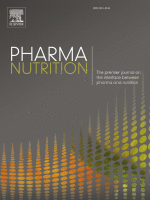
2023 PharmaNutrition
Soy protein, bioactive peptides, and isoflavones are generally safe for consumption and may help reduce the risk of several significant health conditions.
Review Article Cholesterol High Blood Pressure Isoflavone Osteoporosis Soybean
Soy protein, bioactive peptides, and isoflavones: A review of their safety and health benefits
Tan ST, Tan SS, Tan CX

2023 Current Nutrition Reports
Oats, in various edible forms, can regulate appetite hormones, aid weight management, strengthen the immune system, and contribute to gut health, making them effective for obesity management.
Review Article Appetite Oats
Impact of Oats on Appetite Hormones and Body Weight Management: A Review
Shehzad A, Rabail R, Munir S, Jan H, Fernández-Lázaro D, Aadil RM
Review Articles
Review articles summarise and critically evaluate the current state of research on a specific topic or field by synthesising multiple primary research studies.

Ziziphus jujuba (Jujube) in Metabolic Syndrome: From Traditional Medicine to Scientific Validation
2024 Oct 01 Current Nutrition Reports Ghasemzadeh Rahbardar M, Fazeli Kakhki H, Hosseinzadeh H
Review Article Obesity Type 2 Diabetes Metabolic Syndrome High Blood Pressure JujubeZiziphus jujuba and its main components, lupeol and betulinic acid, show promise in treating complications of metabolic syndrome, including diabetes, obesity, and hypertension.

Nutritional and health-beneficial values of almond nuts consumption
2023 Nov 02 Nutrire Ouzir M
Review Article Cardiovascular Disease Cognitive Function Almond Type 2 Diabetes ObesityAlmond consumption has beneficial impacts on cardiovascular diseases, diabetes, obesity, and it can improve cognitive performance and protect against skin aging.

Circadian alignment of food intake and glycaemic control by time-restricted eating: A systematic review and meta-analysis
2023 Nov 22 Reviews in Endocrine and Metabolic Disorders Rovira-Llopis S, Luna-Marco C, Perea-Galera L, Bañuls C, Morillas C, Victor VM
Time-restricted eating (TRE) demonstrated no significant effect on fasting glucose overall, but it did reduce HbA1c levels and fasting insulin, with a tendency to decrease HOMA-IR. The timing of food intake was identified as a crucial factor, with early TRE (eTRE) significantly reducing fasting glucose levels in subjects with overweight or obesity.
Systematic Review Meta-Analysis Intermittent Fasting Circadian Rhythm Blood Sugar Glycaemic Control
Effects of olive oil on hepatic steatosis and liver enzymes: A systematic review
2023 Oct Journal of Functional Foods Ma Y, Ding X, Gu J, Zhou S, Jiang Y
The systematic review concludes that olive oil, used for eating or cooking in randomized controlled trials, demonstrated significant reductions in hepatic steatosis grading through ultrasound and decreases in aspartate transaminase and alanine transaminase levels, suggesting promise in ameliorating hepatic steatosis. However, further investigations are needed to explore the potential effects of different olive oil types or olive polyphenols on chronic liver ailments.
Systematic Review Randomised Controlled Trial Obesity Liver Enzymes Olive Oil Fatty Liver Disease Type 2 Diabetes
Skeletal muscles and gut microbiota-derived metabolites: novel modulators of adipocyte thermogenesis
2023 Oct 06 Frontiers in Endocrinology Tang Y, Wang YD, Wang YY, Liao ZZ, Xiao XH
The study concludes that metabolites from skeletal muscles and gut microbiota function as signaling molecules, interacting with membrane receptors or controlling intracellular enzyme activity, and have the potential to regulate adipocyte thermogenesis in obesity.
Review Article Skeletal Muscle Gut MicrobiotaClinical Trials
Clinical trials are research studies that involve people and are conducted to evaluate the safety and efficacy of new treatments or interventions, such as drugs, medical devices, or behavioural therapies.

Effects of an Unripe Avocado Extract on Glycaemic Control in Individuals with Obesity: A Double-Blinded, Parallel, Randomised Clinical Trial
2023 Nov 17 Nutrients Zhao L, Ingram DK, Gumpricht E, De Paoli T, Teong XT, Liu B, et al.
Randomised Controlled Trial Glucose Blood Sugar AvocadoConsumption of unripe avocado extract in the diet may lower postprandial insulin levels in overweight adults with previously elevated insulin levels.

Effects of olive oil on hepatic steatosis and liver enzymes: A systematic review
2023 Oct Journal of Functional Foods Ma Y, Ding X, Gu J, Zhou S, Jiang Y
The systematic review concludes that olive oil, used for eating or cooking in randomized controlled trials, demonstrated significant reductions in hepatic steatosis grading through ultrasound and decreases in aspartate transaminase and alanine transaminase levels, suggesting promise in ameliorating hepatic steatosis. However, further investigations are needed to explore the potential effects of different olive oil types or olive polyphenols on chronic liver ailments.
Systematic Review Randomised Controlled Trial Obesity Liver Enzymes Olive Oil Fatty Liver Disease Type 2 Diabetes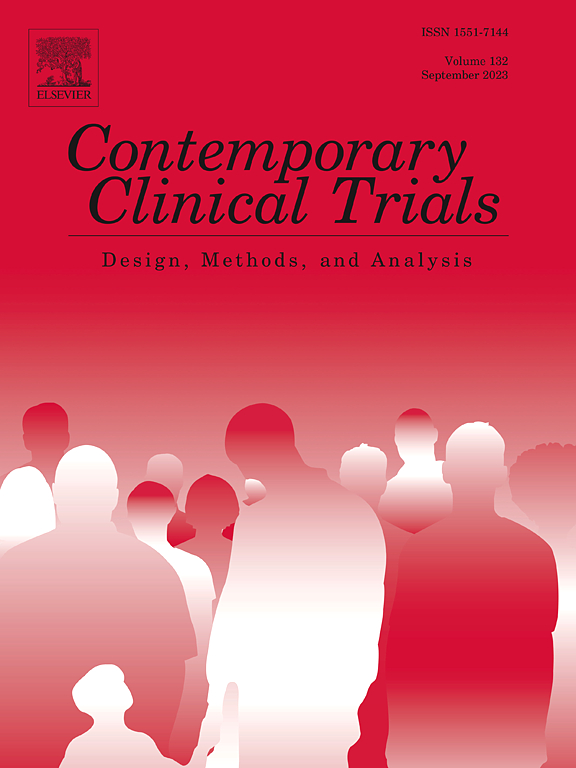
The design and rationale of a multi-center randomized clinical trial comparing one avocado per day to usual diet: The Habitual Diet and Avocado Trial (HAT)
2021 Nov Contemporary Clinical Trials Reboussin DM, Kris-Etherton PM, Lichtenstein AH, Li Z, Sabate J, Matthan NR, et al.
Randomised Controlled Trial Heart Disease Type 2 Diabetes Avocado Cardiometabolic Disease Cardiovascular Disease Visceral Fat Habitual Diet ObesityConsumption of one avocado per day can potentially reduce visceral adiposity and subsequently decrease the risk of diabetes and cardiovascular disease.
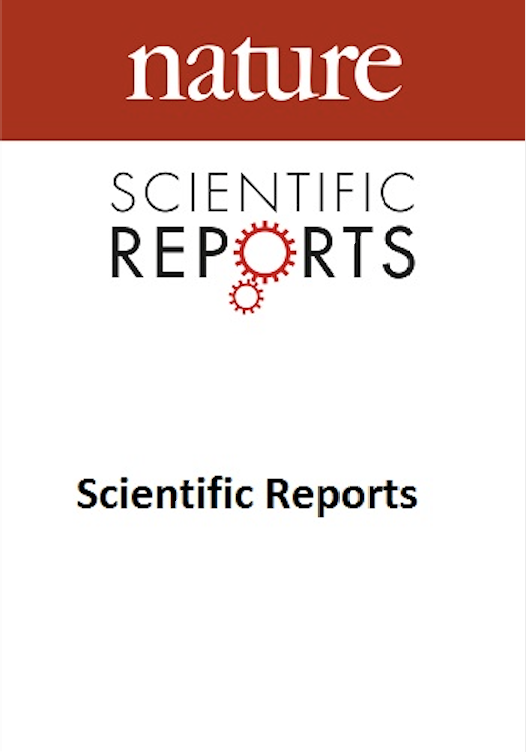
The combined effect of green tea and α-glucosyl hesperidin in preventing obesity: a randomized placebo-controlled clinical trial
2021 Sep 24 Scientific Reports Yoshitomi R, Yamamoto M, Kumazoe M, Fujimura Y, Yonekura M, Shimamoto Y, et al.
Clinical Study Randomised Controlled Trial EGCG Obesity Green TeaConsumption of green tea enriched with a citrus polyphenol, α-glucosyl hesperidin, can prevent weight gain and reduce body mass index, especially in individuals under 50 years.

The effect of pomegranate extract on anthropometric indices, serum lipids, glycemic indicators, and blood pressure in patients with nonalcoholic fatty liver disease: A randomized double‐blind clinical trial
2021 Sep 08 Phytotherapy Research Goodarzi R, Jafarirad S, Mohammadtaghvaei N, Dastoorpoor M, Alavinejad P
Randomised Controlled Trial Obesity Pomegranate HDL-C Blood Sugar Triglyceride Insulin Resistance Cholesterol Diastolic Blood PressurePomegranate extract supplement shows potential in improving glycemic indicators, serum lipids, anthropometrics, and blood pressure in patients with nonalcoholic fatty liver disease.
Study Protocols
Published study protocols are detailed plans that outline the objectives, methodology, statistical analyses, and organisation of a research study that have been made publicly available for others to review and use as a reference.
Presentation Slides

Review Article
Ziziphus jujuba and its main components, lupeol and betulinic acid, show promise in treating complications of metabolic syndrome, including diabetes, obesity, and hypertension.
Ghasemzadeh Rahbardar M, Fazeli Kakhki H, Hosseinzadeh H

Randomised Controlled Trial
Consumption of unripe avocado extract in the diet may lower postprandial insulin levels in overweight adults with previously elevated insulin levels.
Zhao L, Ingram DK, Gumpricht E, De Paoli T, Teong XT, Liu B, Mori TA, Heilbronn LK, Roth GS

Review Article
Almond consumption has beneficial impacts on cardiovascular diseases, diabetes, obesity, and it can improve cognitive performance and protect against skin aging.
Ouzir M

Review Article
Soy protein, bioactive peptides, and isoflavones are generally safe for consumption and may help reduce the risk of several significant health conditions.
Tan ST, Tan SS, Tan CX

Review Article
Oats, in various edible forms, can regulate appetite hormones, aid weight management, strengthen the immune system, and contribute to gut health, making them effective for obesity management.
Shehzad A, Rabail R, Munir S, Jan H, Fernández-Lázaro D, Aadil RM
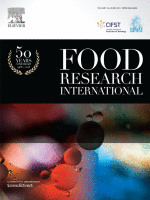
Animal Study
Pu-erh tea and its ingredient theabrownin improve liver, jejunum, and adipose tissue functions in metabolic syndrome mice, modulating circadian rhythm, glycerophospholipid, and linoleic acid metabolism.
Hou Y, Zhang Z, Cui Y, Peng C, Fan Y, Tan C, Wang Q, Liu Z, Gong J
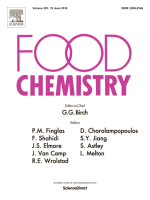
Experimental Study
Pu-erh tea, through the increase of Cinnabarinic acid, can improve obesity induced by circadian rhythm disorders by enhancing fat metabolism and altering gut microbes.
Hu S, Hu C, Luo L, Zhang H, Zhao S, Liu Z, Zeng L

Systematic Review
Traditional Chinese Medicine (TCM) demonstrates weight loss efficacy and metabolic benefits in overweight and obese individuals
Wen ZG, Zhang QQ, Zhang LL, Shen MF, Huang YS and Zhao LH
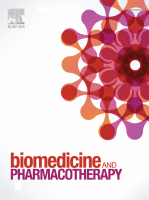
Review Article
Pomegranate extract and its phytochemicals can potentially inhibit severe acute respiratory syndrome coronavirus 2 (SARS-COV-2) and improve gut microbiota, preventing obesity and diabetes.
Maphetu N, Unuofin JO, Masuku NP, Olisah C, Lebelo SL
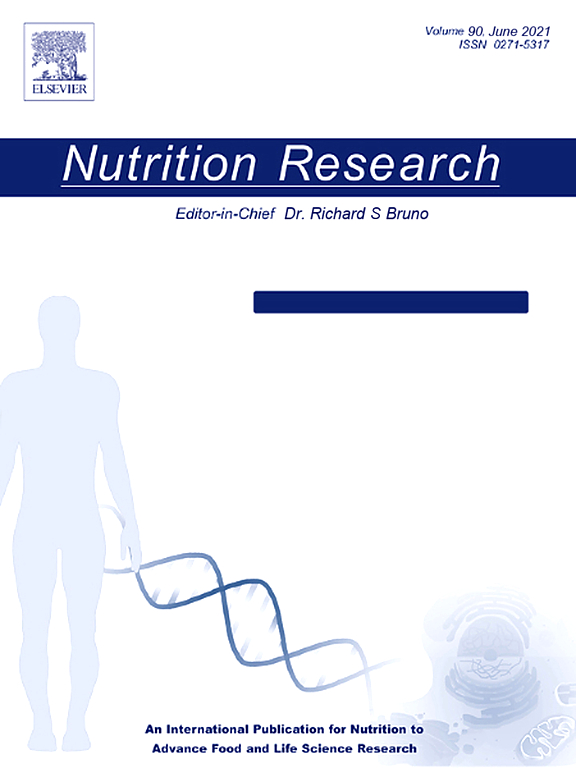
Meta-Analysis
Green tea supplementation can significantly reduce body weight in women with polycystic ovary syndrome, hence potentially beneficial in its clinical management.
Colonetti L, Grande AJ, Toreti IR, Ceretta LB, da Rosa MI, Colonetti T

Animal Study
Cooked adzuki beans contribute notably to preventing obesity and regulating gut microbiota composition, while also alleviating systemic inflammation and metabolic disorders.
Zhao Q, Liu Z, Zhu Y, Wang H, Dai Z, Yang X, Ren X, Xue Y, Shen Q

Review Article
Purple carrot roots, rich in bioactive compounds like anthocyanin, may be effective in preventing metabolic syndrome and cancer by reducing inflammation and metabolic changes.
Rasheed H, Shehzad M, Rabail R, Kowalczewski P, Kidoń M, Jeżowski P, Ranjha MMAN, Rakha A, Din A, Aadil RM

Review Article
Modern extraction techniques improve the extraction of bioactive compounds from black soybeans, which have potential use in functional foods and nutraceutical components.
Kumar M, Suhag R, Hasan M, Dhumal S, Radha , Pandiselvam R, Senapathy M, Sampathrajan V, Punia S, Sayed AAS, Singh S, Kennedy JF

Review Article
Chrysanthemums, popular floricultural crops, not only hold significant ornamental value but also exhibit various therapeutic potentials including antioxidant, antimicrobial, and anticancer activities.
Hadizadeh H, Samiei L, Shakeri A

Randomised Controlled Trial
Consumption of one avocado per day can potentially reduce visceral adiposity and subsequently decrease the risk of diabetes and cardiovascular disease.
Reboussin DM, Kris-Etherton PM, Lichtenstein AH, Li Z, Sabate J, Matthan NR, Petersen K, Rajaram S, Vitolins M, Ford N

Review Article
Recent findings suggest that the molecular background to the development of insulin resistance may be related to vitamin D deficiency.
Contreras-Bolívar V, García-Fontana B, García-Fontana C, Muñoz-Torres M

Systematic Review
Almond-based diets may be effective in promoting short-chain fatty acid-producing bacteria and lowering glycated haemoglobin and body mass index in patients with type 2 diabetes compared with control.
Ojo O, Wang XH, Ojo OO, Adegboye ARA

Clinical Study
Consumption of green tea enriched with a citrus polyphenol, α-glucosyl hesperidin, can prevent weight gain and reduce body mass index, especially in individuals under 50 years.
Yoshitomi R, Yamamoto M, Kumazoe M, Fujimura Y, Yonekura M, Shimamoto Y, Nakasone A, Kondo S, Hattori H, Haseda A, Nishihira J, Tachibana H
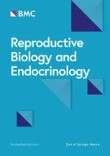
Systematic Review
Green tea extract could be considered a potential agent to attenuate PCOS complications mainly due to its effect on weight loss and glycemic levels.
Maleki V, Taheri E, Varshosaz P, Tabrizi FPF, Moludi J, Jafari-Vayghan H, Shadnoush M, Jabbari SHY, Seifoleslami M, Alizadeh M

Animal Study
Adzuki beans, when added to a high-fat diet, lessen obesity, improve liver function, enhance insulin sensitivity, and balance gut microbiota.
Zhao Q, Hou D, Fu Y, Xue Y, Guan X, Shen Q

Randomised Controlled Trial
Pomegranate extract supplement shows potential in improving glycemic indicators, serum lipids, anthropometrics, and blood pressure in patients with nonalcoholic fatty liver disease.
Goodarzi R, Jafarirad S, Mohammadtaghvaei N, Dastoorpoor M, Alavinejad P

Review Article
Coffee consumption may contribute to the prevention of several inflammatory diseases and types of cancer, with reduced mortality risk deemed safe up to 400mg of caffeine per day.
Barrea L, Pugliese G, Frias-Toral E, El Ghoch M, Castellucci B, Chapela SP, Carignano MA, Laudisio D, Savastano S, Colao A, Muscogiuri G
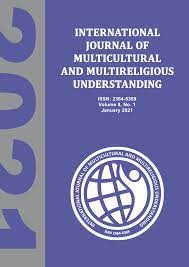
Randomised Controlled Trial
Combined exercise and coffee consumption significantly reduce fasting blood sugar and abdominal obesity in middle-aged, pre-diabetic men.
Taheri AR, Talebi N

Review Article
Almonds can support colonic microbiota health by promoting microflora richness and diversity, increasing the ratio of symbiotic to pathogenic microflora, and concentrations of health-promoting colonic bioactives.
Dreher ML

Review Article
Recent systematic reviews and meta-analyses of nut RCTs showed that almonds were the only nut that had a small but significant decrease in both mean body mass and fat mass, compared to control diets.
Dreher ML
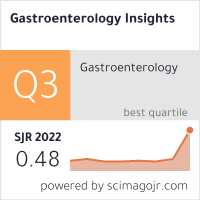
Review Article
Tea polyphenols can help rebalance gut microbiota, alleviating imbalances caused by obesity, diabetes, and UV damage, with effects varying by tea type.
Khairudin MAS, Mhd Jalil AM, Hussin N

Review Article
Green tea, coffee, wine, and curry have beneficial health effects due to the polyphenols they contain, which possess both antioxidant and pro-oxidant properties.
Ohishi T, Fukutomi R, Shoji Y, Goto S, Isemura M
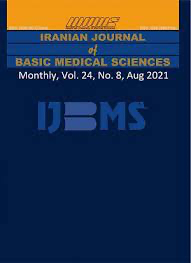
Review Article
Eggplant can be useful in the treatment of metabolic syndrome and its complications.
Yarmohammadi, F., Ghasemzadeh Rahbardar, M., Hosseinzadeh, H
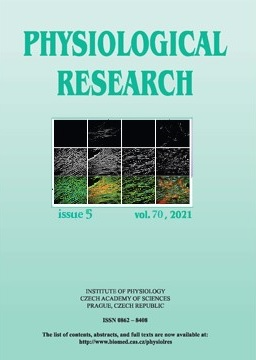
Review Article
Tea and coffee possess health promoting properties and can effectively prevent and treat metabolic disorders, including obesity, through the suppression of fat storage.
Sirotkin AV, Kolesarova A
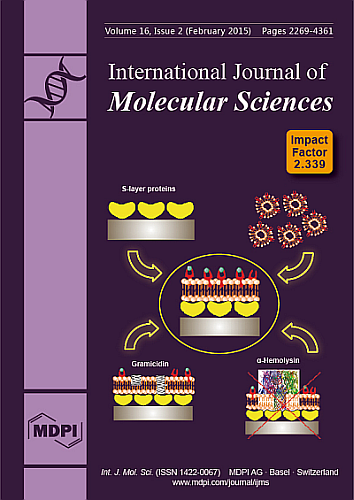
Review Article
Regular coffee consumption, due to its bioactive compounds, may have protective effects against chronic disorders and certain neurodegenerative conditions.
Socała K, Szopa A, Serefko A, Poleszak E, Wlaź P

Systematic Review
Chilli pepper supplementation had significant effect on low density lipoprotein-cholesterol and marginally significant effect on body weight.
Jang, HH., Lee, J., Lee, SH. et al.

Review Article
Jujube fruits contain a high amount of various bioactive compounds exerting antioxidant, anti-inflammatory, antiobesity, anti-cardiovascular disease, hepatoprotective, antidiabetic, anti-microbial, anticancer, and gastrointestinal-protective effects.
Rashwan, A. K, Karim, N., Shishir, M. Rezaul Islam, Bao, T., Lu, Y., & Chen, W.
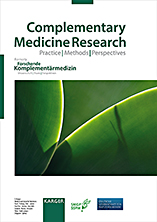
Systematic Review
Green tea consumption notably reduces body weight, body mass index, and body fat, especially in long-term use, at lower dosages, and among overweight individuals with type-2 diabetes.
Asbaghi O, Fouladvand F, Gonzalez MJ, Aghamohammadi V, Choghakhori R, Abbasnezhad A
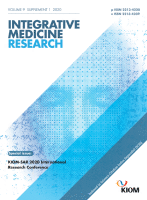
Systematic Review
The effect of acupuncture on weight loss may be maximized when acupuncture treatment is combined with lifestyle management in patients with overweight.
SeoyoungKim

Meta-Analysis
Supplementation with blueberry shows a potential for beneficial impact on reducing body weight, which might indirectly influence cardiovascular disease risk factors.
Miraghajani M, Momenyan S, Arab A, Hasanpour Dehkordi A, Symonds ME
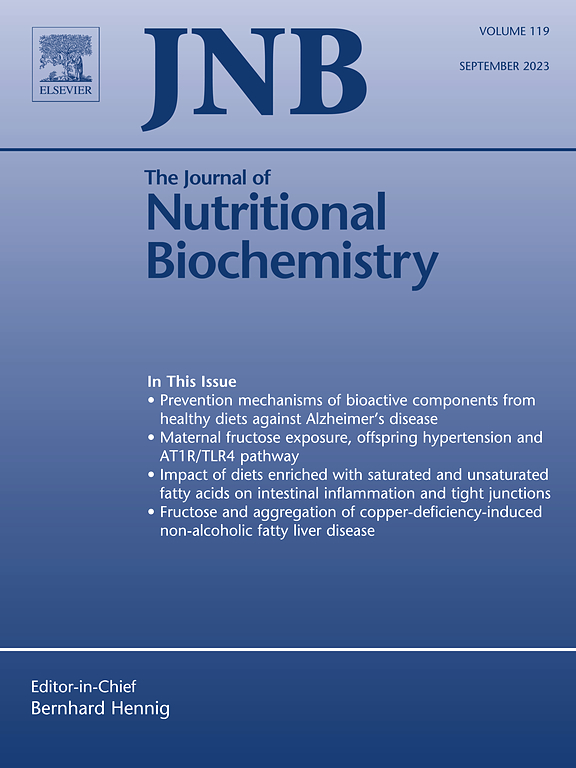
Review Article
Honey, with its variable composition based on botanical origin, exhibits antioxidant and anti-inflammatory properties, suggesting its potential efficacy in managing obesity-related dysfunctions, including neurodegeneration, through improved glycemic control and lipid profile.
Terzo S, Mulè F, Amato A

Daily consumption of coffee and green tea is linked with decreased body mass index, body fat percentage, and cardiovascular risks in middle-aged Japanese women.
Yonekura Y, Terauchi M, Hirose A, Odai T, Kato K, Miyasaka N

Systematic Review
Green tea intake can significantly reduce body weight, body mass index and waist circumference, with the greatest effect seen with lower dosages and shorter treatment durations.
Lin Y, Shi D, Su B, Wei J, Găman MA, Sedanur Macit M, Borges do Nascimento IJ, Guimaraes NS

Animal Study
Adzuki bean paste consumption can reduce fat accumulation in rats by lowering energy intake and altering gut microbiota composition.
Han KH, Ohashi S, Sasaki K, Nagata R, Pelpolage S, Fukuma N, Reed JD, Shimada K, Kadoya N, Fukushima M
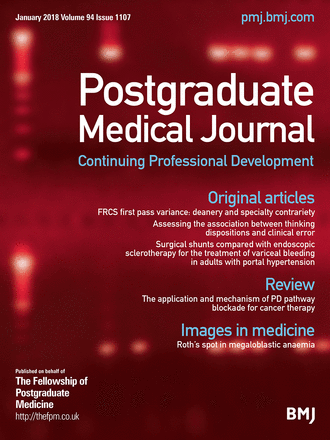
Systematic Review
Acupuncture is an effective therapy for simple obesity rather than a placebo effect.
Zhong YM, Luo XC, Chen Y, Lai DL, Lu WT, Shang YN, Zhang LL, Zhou HY
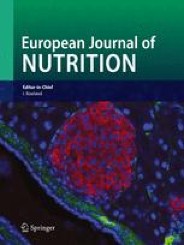
Systematic Review
Apple vinegar consumption has potential health benefits, including weight loss and lower blood glucose levels, with seemingly insignificant side effects.
Launholt TL, Kristiansen CB, Hjorth P

Randomised Controlled Trial
Daily avocado consumption improves attentional inhibition and increases serum lutein concentrations, irrespective of changes in lutein status, in adults with obesity.
Edwards CG, Walk AM, Thompson SV, Reeser GE, Erdman JW, Burd NA, Holscher HD, Khan NA

Systematic Review
Almond intake significantly reduces body weight and fat mass in adults, yet it does not impact body mass index, waist circumference, or fat-free mass.
Eslampour E, Moodi V, Asbaghi O, Ghaedi E, Shirinbakhshmasoleh M, Hadi A, Miraghajani M
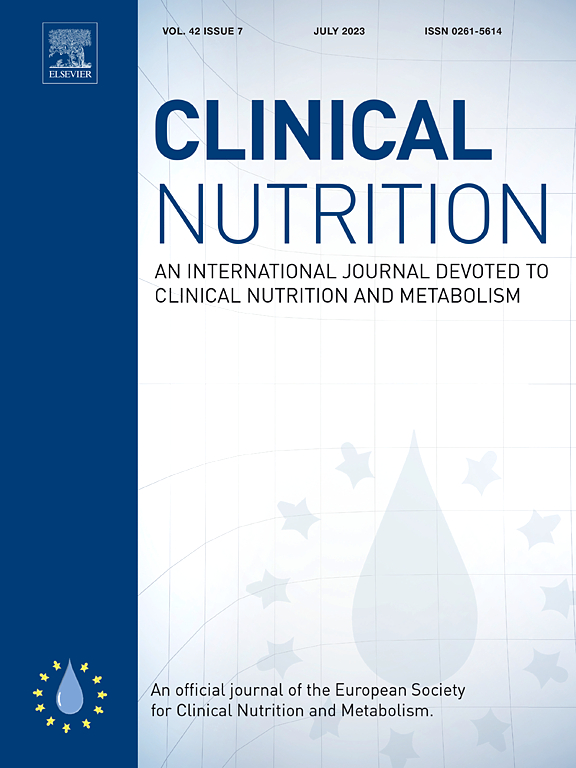
Systematic Review
Cinnamon intake significantly reduces body weight, body mass index, waist circumference, and fat mass in adults, and can be recommended as a supplement for obesity management.
Mousavi SM, Rahmani J, Kord-Varkaneh H, Sheikhi A, Larijani B, Esmaillzadeh A

Experimental Study
Pu-erh tea was found to lower triglyceride and total cholesterol levels more significantly than green, oolong, or black teas.
Huang, F., Zheng, X., Ma, X. et al.

Systematic Review
Acupuncture is effective in the intervention of overweight/obesity in Asians.
Yao J, He Z, Chen Y, Xu M, Shi Y, Zhang L, Li Y.

Experimental Study
Pomegranate extracts and a probiotic strain have shown a combined effect in reducing fat content and the development of fat cells, potentially useful in preventing and treating obesity.
Sorrenti V, Randazzo CL, Caggia C, Ballistreri G, Romeo FV, Fabroni S, Timpanaro N, Raffaele M, Vanella L
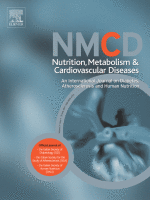
Randomised Controlled Trial
Synbiotic pomegranate juice (containing inulin and lactobacillus) can improve insulin resistance, reduce testosterone level, and aid weight loss in women suffering from Polycystic Ovarian Syndrome.
Esmaeilinezhad Z, Babajafari S, Sohrabi Z, Eskandari MH, Amooee S, Barati-Boldaji R

Experimental Study
Lemongrass extract has potential as a supplement to chemotherapy, reducing colon cancer growth, enhancing treatment effectiveness, and mitigating side effects like weight loss.
Ruvinov I, Nguyen C, Scaria B, Vegh C, Zaitoon O, Baskaran K, Mehaidli A, Nunes M, Pandey S
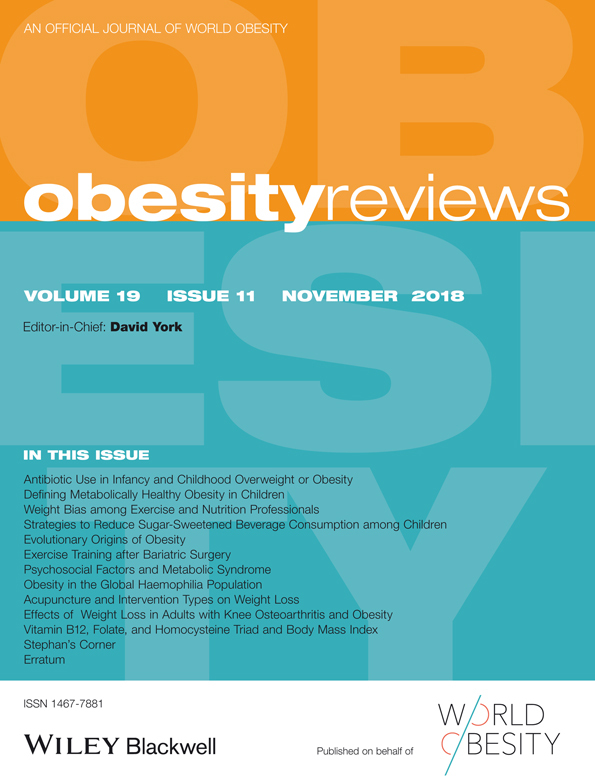
Systematic Review
Unlike herbal medicine and lifestyle modification, acupuncture treatment may be more effective in patients with overweight than in patients with obesity.
Kim SY, Shin IS, Park YJ.

Randomised Controlled Trial
Consuming two SunGold kiwifruits daily over 12 weeks improved vitamin C status, reduced blood pressure, waist measurements and altered faecal microbiota composition in prediabetic individuals.
Wilson R, Willis J, Gearry R, Hughes A, Lawley B, Skidmore P, Frampton C, Fleming E, Anderson A, Jones L, Tannock G, Carr A

Systematic Review
Subgroup analysis suggests consuming at least 30 grams of dark chocolate per day for a trial period between four to eight weeks may lead to reductions in weight and body mass index.
Kord-Varkaneh H, Ghaedi E, Nazary-Vanani A, Mohammadi H, Shab-Bidar S

Network Pharmacology
Adzuki beans, rich in flavonoids and saponins, can potentially prevent obesity by inhibiting enzymes related to fat accumulation and enhancing lipid breakdown.
Liu R, Zheng Y, Cai Z, Xu B
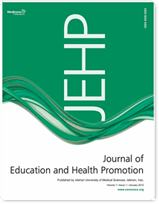
Randomised Controlled Trial
Green tea consumption leads to weight loss and decreased levels of fasting insulin and free testosterone in overweight women with polycystic ovarian syndrome.
Tehrani HG, Allahdadian M, Zarre F, Ranjbar H, Allahdadian F

Systematic Review
Avocado, with its lipid-lowering, antihypertensive, antidiabetic, anti-obesity, and cardioprotective effects, can potentially manage metabolic syndrome more efficaciously than synthetic treatment options.
Tabeshpour J, Razavi BM, Hosseinzadeh H
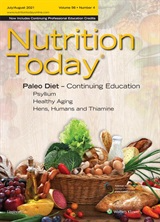
Review Article
Fenugreek can be beneficial as an adjunct in controlling high blood glucose and lipid levels in people with diabetes.
Singletary, Keith W.
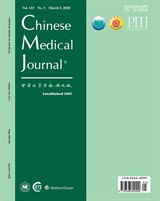
Randomised Controlled Trial
Acupuncture used for weight loss may increase the effectiveness of oral iron supplementation to treat obesity-related iron deficiency.
Xie XC, Cao YQ, Gao Q, Wang C, Li M, Wei SG
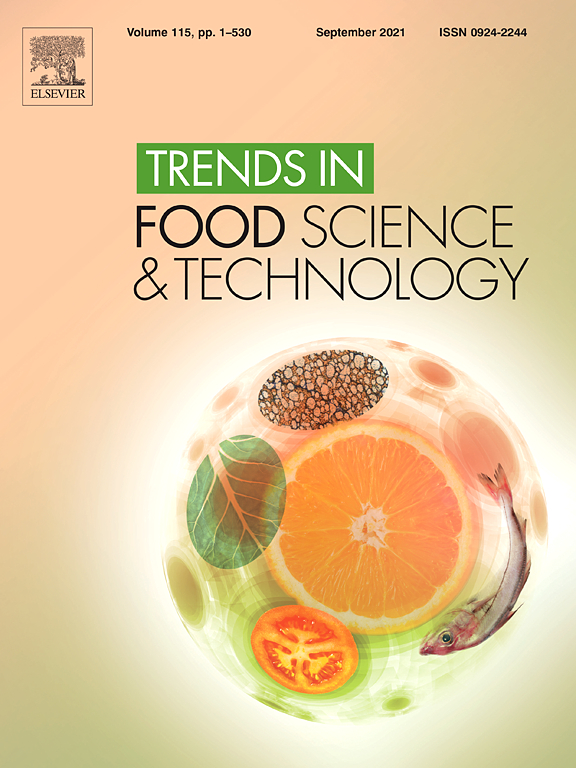
Review Article
The claimed health benefits of coix include anti-oxidation, anti-cancer, anti-inflammation, anti-allergy, enhancing immunological activity, regulating endocrine functions, anti-obesity, anti-diabetes, gastroprotection, hypolipidemia, and modulating gut microbiota.
Fan Zhu
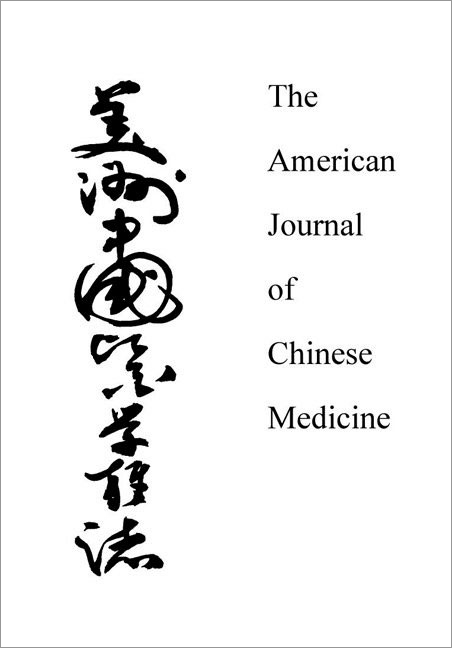
Systematic Review
Our results indicate that acupuncture is an effective treatment for obesity both alone and together with lifestyle modification.
Fang S, Wang M, Zheng Y, Zhou S, Ji G.

Review Article
Previous records suggest pleiotropic pharmacological activities of capsaicin such as an analgesic, anti-obesity, anti-pruritic, anti-inflammatory, anti-apoptotic, anti-cancer, anti-oxidant, and neuro-protective functions. Emerging data indicate its clinical significance in treating vascular-related diseases, metabolic syndrome, and gastro-protective effects.
Basith S, Cui M, Hong S, Choi S
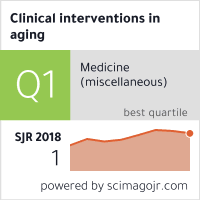
Randomised Controlled Trial
Daily consumption of Puer tea extract results in significant weight loss, reduced body fat, and improved lipid profile in a non-Asian overweight population.
Jensen GS, Beaman JL, He Y, Guo Z, Sun H.
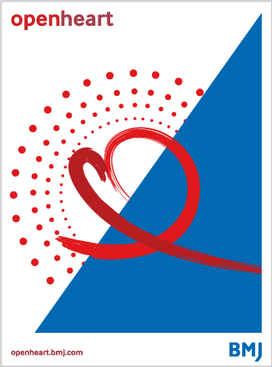
Systematic Review
Clinically, ingestion of capsaicin-or its less stable non-pungent analogue capsiate-has been shown to boost metabolic rate modestly.
McCarty MF, DiNicolantonio JJ, O'Keefe JH

Systematic Review
Radish seed has been demonstrated to have beneficial effects on hypertension, obesity, diabetes mellitus, constipation, and cough.
Tung-Ting Sham, Ailsa Chui-Ying Yuen, Yam-Fung NgChi-On ChanDaniel Kam-Wah Mok, and Shun-Wan Chan
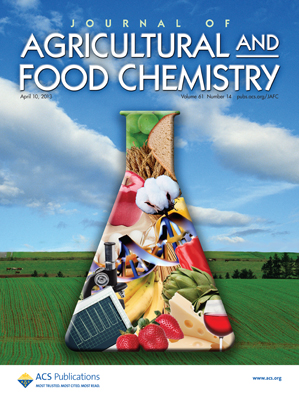
Review Article
Recent phytochemical studies of jujube fruits have shed some light on their biological effects, such as the anticancer, anti-inflammatory, antiobesity, immunostimulating, antioxidant, hepatoprotective, and gastrointestinal protective activities and inhibition of foam cell formation in macrophages.
Gao QH, Wu CS, Wang M.
Executive Summary
Write an executive summary in the form of a blog article on the topic of "Research into Chinese medicine treatment for Obesity" summarising the research below and using language that can be easily understood by patients and avoiding medical jargon using a professional and caring tone of voice.
Write an executive summary in the form of a blog article on the topic of "Researched Chinese medicine treatments for Obesity" summarising the research below in an objective and easy to understand way, and using language that can be easily understood by patients. Group the article into Chinese medicine treatments first, followed by nutrition and other treatments. Avoid using medical jargon and use a professional and caring tone of voice.
Write me a concise but easy to understand executive summary on the topic of "Chinese medicine treatments for Obesity" based on the following research that I will give you. Your summary should be 2 paragraphs long in Australian English spelling and include references to the studies.
A Review Article published in 2024 in the journal Current Nutrition Reports found that Ziziphus jujuba and its main components, lupeol and betulinic acid, show promise in treating complications of metabolic syndrome, including diabetes, obesity, and hypertension. The research assessed the properties of Ziziphus jujuba and its main bioactive agents, lupeol and betulinic acid, in relation to metabolic syndrome. Investigations focussed on their potential roles in glucose uptake enhancement, hepatic glucose synthesis reduction, insulin sensitivity improvement, and lipid profile modulation. Studies involved identifying the influence of these substances on key signaling pathways and insulin signaling proteins, as well as evaluating their anti-adipogenic effects and capacity to improve endothelial function. Ziziphus jujuba and its constituents exhibited potential therapeutic benefits for metabolic syndrome by facilitating glucose uptake, reducing glucose synthesis, and improving insulin sensitivity. They also showed potential in moderating lipid synthesis and fat accumulation, demonstrating anti-fatty effects and a capacity to influence adipogenic enzymes and transcription factors. Moreover, these substances demonstrated enhanced endothelial function, reflecting positively on vascular health. These accumulative findings suggest promising potential for Z. jujuba, lupeol, and betulinic acid as natural treatments for metabolic syndrome complications.
A Randomised Controlled Trial published in 2023 in the journal Nutrients found that Consumption of unripe avocado extract in the diet may lower postprandial insulin levels in overweight adults with previously elevated insulin levels. In this study, a double-blinded, randomised controlled trial was performed on 60 non-diabetic adults (with a majority of 47 being women, average age 48 years, BMI 34.0 kg/m). The participants were stratified by sex and randomised into two groups. One group daily consumed an extract from unripe avocado (10 g finely ground, freeze-dried unripe avocado), while the other took a placebo (10 g finely ground cornmeal supplemented with 5% spinach powder) over a period of 12 weeks. The primary outcome measured was the change in glucose area under the curve (AUC) in response to a 75 g oral glucose tolerance test. The results showed no significant differences between both groups in terms of glucose AUC, insulin AUC, or cardiovascular outcomes. However, in a subgroup analysis focusing on participants with above median baseline postprandial insulin levels, there was a notable reduction in insulin AUC in those who consumed the avocado extract compared to the placebo. This suggests that the daily consumption of an unripe avocado extract, enriched in MH, might not significantly impact glucose tolerance or insulin sensitivity in obese non-diabetic adults. Nonetheless, there seems to be a potential benefit of this intervention on postprandial insulin levels in individuals with initially elevated insulin responses.
A Review Article published in 2023 in the journal Nutrire found that Almond consumption has beneficial impacts on cardiovascular diseases, diabetes, obesity, and it can improve cognitive performance and protect against skin aging. The methodology employed in this study included analyzing a range of clinical studies centered on the health benefits linked to the consumption of sweet almond nuts. Various health outcomes correlated with almond consumption were investigated such as body weight, food intake, blood pressure, blood lipid composition, glucose and insulin levels, oxidative status, liver enzymes, and some inflammation biomarkers. The discussion of the results reveals that almond consumption has been found to create favorable alteration in aspects like body weight, food intake, blood pressure, blood lipid composition, glucose, and insulin levels, as well as oxidative status, liver enzymes, and inflammation biomarkers. These findings highlight the beneficial impact of almonds on multiple health issues including cardiovascular diseases, diabetes, and obesity. Additionally, the consumption of almonds has been associated with improved cognitive performance and protection against skin photodamage and aging.
A Review Article published in 2023 in the journal PharmaNutrition found that Soy protein, bioactive peptides, and isoflavones are generally safe for consumption and may help reduce the risk of several significant health conditions. Methodology: This review followed the Preferred Reporting Items for Systematic reviews and Meta-Analyses guidelines. It began with a sophisticated multi-database search, featuring resources like Google Scholar, Scopus, and others. This search targeted articles published from 2017 to March 2023 and used specific keywords for accuracy. Forty-three articles were handpicked from this process after excluding reviews, conference reports, duplicates, inaccessible texts, and any non-English publications. Discussion of Results: A thorough examination of the chosen articles resulted in the conclusion that soy proteins, soy bioactive peptides, and soy isoflavones are typically safe for human consumption. Furthermore, it was found that the consumption of these compounds may have beneficial effects, potentially lowering risk factors for ailments such as osteoporosis, various cancers, hypertension, atherosclerosis, and more.
A Review Article published in 2023 in the journal Current Nutrition Reports found that Oats, in various edible forms, can regulate appetite hormones, aid weight management, strengthen the immune system, and contribute to gut health, making them effective for obesity management. The research methodology entailed a review of the role of hunger hormones in managing obesity and studying the influence of different edible forms of oats like whole, naked, sprouted, or supplemented oats on these hormones. The relationship between consumption of oats and various indicators of obesity such as body mass index, waist circumference, body weight, appetite, and blood pressure, amongst others was investigated. Furthermore, the nutritional content of oats like protein, fiber, healthy fats, and bioactive ingredients was analyzed, with particular emphasis on Beta-glucan as it lowers cholesterol levels and enhances the body's defense system. The results of the studies showed that oats have several therapeutic potentials. An intake of oats helps manage body weight and control appetite. In addition, oats positively impact the immune system and lower cholesterol levels in the serum. They also foster gut health by promoting the increased production of short-chain fatty acids. Despite these findings, some studies showed no significant effects of oats on appetite.
A Animal Study published in 2022 in the journal Food Research International found that Pu-erh tea and its ingredient theabrownin improve liver, jejunum, and adipose tissue functions in metabolic syndrome mice, modulating circadian rhythm, glycerophospholipid, and linoleic acid metabolism. In this study, varied technological applications such as metagenomics, transcriptomics, and metabolomics were utilized to explore the anti-metabolic syndrome mechanism of Pu-erh tea and theabrownin in mice with metabolic syndrome. These scientific technologies allowed the researchers to understand and explore improvements in the physiological functions of liver, jejunum, and adipose tissues in the metabolic syndrome mice as a result of Pu-erh tea and theabrownin interventions. The investigation also focused on changes to the hepatic transcriptome, revealing that both of these interventions had the capacity to regulate the circadian rhythm pathway. The results showcased that both interventions succeeded in the modulation of glycerophospholipid and linoleic acid metabolism, this was established through a comprehensive analysis of serum and brain metabolome. Further analysis of faecal metagenome demonstrated an increase in the relative abundance of certain bacterium and a decrease in others due to both interventions. However, in comparison to Pu-erh tea, theabrownin exhibited a more pronounced influence as regards upregulating hepatic antioxidants and downregulating hepatic inflammatory factors, although there was only a slight reduction in obesity-linked short-chain fatty acids in faeces of the metabolic syndrome mice. Overall, the experiment provided essential insights into the various ways these two elements function and provide treatment for metabolic syndrome.
A Experimental Study published in 2022 in the journal Food Chemistry found that Pu-erh tea, through the increase of Cinnabarinic acid, can improve obesity induced by circadian rhythm disorders by enhancing fat metabolism and altering gut microbes. In this study, a CRD-induced obesity model in mice was developed and Pu-erh tea was used as an intervention. The effect of Pu-erh tea on obesity was observed and determined to come from its production of Cinnabarinic acid (CA). CA was found to promote adipose tissue lipolysis and heat generation response, increasing the sensitivity of fat cells to hormones and neurotransmitters. This was accomplished by targeting the expression of specific receptor proteins in adipose tissue. These processes improved mitochondrial activity in the fat cells and expedited metabolic processes in the adipose tissue, thereby speeding up glucose and fat metabolism. In the final stage of the study, CA was found to make changes in the gut microbiota and short-chain fatty acids which further helped to improve the lipid accumulation mediated by CRD. The researchers concluded that the increase in CA, caused by drinking Pu-erh tea and reaching the fat tissue through blood circulation, could be a crucial mechanism to reduce obesity induced by circadian rhythm disorders.
A Systematic Review published in 2022 in the journal Frontiers in Pharmacology found that Traditional Chinese Medicine (TCM) demonstrates weight loss efficacy and metabolic benefits in overweight and obese individuals TCM interventions, particularly polyherbal preparations, effectively reduced weight, BMI, waist and hip circumference in overweight and obese individuals across 25 studies with nearly 2,000 participants. TCM also improved glucose and lipid metabolism by reducing fasting blood glucose, triglycerides, and total cholesterol while increasing HDL levels. TCM treatments were generally well-tolerated and safe, with some mild adverse effects.
A Review Article published in 2022 in the journal Biomedicine & Pharmacotherapy found that Pomegranate extract and its phytochemicals can potentially inhibit severe acute respiratory syndrome coronavirus 2 (SARS-COV-2) and improve gut microbiota, preventing obesity and diabetes. The study employs the use of in silico molecular docking methodologies to demonstrate that extract from pomegranates and their phytochemicals can serve as inhibitors of severe acute respiratory syndrome coronavirus 2's spike protein and the angiotensin-converting enzyme 2 receptor contact. These findings are further reinforced by clinical trials which suggest that pomegranates can also alleviate non-alcoholic fatty liver disease, metabolic syndrome, dental infections, and symptoms of menopause. This study has also identified numerous active compounds within pomegranates such as alkaloids, anthocyanidins, tannins, flavonoids, phenolics, proanthocyanidins, sterols, terpenes, terpenoids, xanthonoids, fatty acids, organic acids, lignans, saccharides, and vitamin C. This mixture of active compounds is believed to significantly contribute to the broad array of pharmacological activities identified within the pomegranate. This includes anti-diabetic, anti-tumor, anti-inflammatory, anti-malaria, anti-fibrotic, anti-fungal, and anti-bacterial effects. The extract from this fruit improves gut microbiota which could potentially aid in the prevention of obesity and diabetes.
A Meta-Analysis published in 2022 in the journal Nutrition Research found that Green tea supplementation can significantly reduce body weight in women with polycystic ovary syndrome, hence potentially beneficial in its clinical management. The research carried out was a systematic review of randomized controlled trials that focused on women with polycystic ovary syndrome, examining the effects of green tea supplementation versus a placebo. Relevant studies were sourced from electronic databases such as MEDLINE via PubMed, EMBASE via Elsevier, Cochrane Library, LILACS via BVS, and Web of Science using specific terms related to the illness and green tea. Criteria for the evaluation included effects on body weight, fasting insulin, body mass index, body fat percentage, daily caloric intake, waist and hip circumference, and the waist/hip ratio. Among the studies considered, there were a total of 169 women, with 85 allocated to the green tea group and 84 to the placebo group. It became apparent that there was a significant reduction in body weight for the group that received green tea supplementation. This leans towards the potential of green tea to be beneficial in the management of this syndrome.
A Animal Study published in 2022 in the journal Frontiers in Nutrition found that Cooked adzuki beans contribute notably to preventing obesity and regulating gut microbiota composition, while also alleviating systemic inflammation and metabolic disorders. The methodology involved a controlled experiment where mice were fed diets of varying lipid content: a low-fat diet or a high-fat diet. The specific twist in this experiment was the inclusion or exclusion of cooked adzuki beans to their diet, ensuring 15% of the diet comprised of this. The duration of this dietary regimen was 12 weeks. In the discussion of results, it was discovered that cooked adzuki beans provided key beneficial effects. This included a significant inhibition of weight gain and hepatic steatosis, a reduction in high levels of specific markers such as serum triacylglycerol, alanine aminotransferase, and aspartate aminotransferase, providing a counter to systemic inflammation and metabolism-related endotoxemia commonly found in those consuming a high-fat diet. Moreover, the inclusion of adzuki beans positively affected the gut microbiota composition, reducing fat-inducing bacteria and enriching the gut with beneficial bacteria to help alleviate inflammation and metabolic disorders associated with high-fat diets.
A Review Article published in 2022 in the journal Applied Sciences found that Purple carrot roots, rich in bioactive compounds like anthocyanin, may be effective in preventing metabolic syndrome and cancer by reducing inflammation and metabolic changes. The methodology employed in the research deeply studies the role of purple carrot’s main bioactive compounds against metabolic syndrome and cancer. The main focus lies on anthocyanin, a phenolic compound present in purple carrot roots. This natural food source was shifted towards as a healthier nutritional approach instead of dietary supplements. The research leans on the effectiveness of these compounds in evading or delaying the onset of cardiovascular diseases, obesity, diabetes, and cancer by inhibiting inflammatory effects. The discussion primarily surrounds the role of bioactive compounds found in purple carrots, specifically anthocyanin, in their potential prevention of metabolic syndrome and cancer. The study focused on how these components could disrupt the onset of cardiovascular disease, obesity, diabetes, and similar health issues. The results suggest that these compounds were successful in decreasing metabolic changes and inflammation. It has been suggested that purple carrots' inherent components might serve as a major tool in the prevention and treatment of metabolic syndrome and cancer.
A Review Article published in 2022 in the journal Critical Reviews in Food Science and Nutrition found that Modern extraction techniques improve the extraction of bioactive compounds from black soybeans, which have potential use in functional foods and nutraceutical components. These modern extraction techniques involve the application of technologies such as microwaves, ultrasounds, and enzymes. Contrary to traditional methods that depend on simple yet toxic solvents, these contemporary options yield higher amounts of bioactive substances from black soybeans, are quicker, and are less damaging to the environment. The exact bioactive compounds extracted include anthocyanins, phenolic acids, isoflavones, and flavones, among others. Researchers discovered that black soybeans, and specifically their seed coat, are rich in various bioactive compounds. These compounds have been reported to possess numerous health benefits, showing antioxidant, anti-cancer, anti-diabetic, anti-obesity, anti-inflammatory, cardio and neuroprotective activities. The study also explores how these soybean extracts have been used in the manufacture of food products like noodles, in the development of biodegradable films with pH sensitivity, and in therapeutic applications such as promoting wound healing and alleviating inflammation. The comprehensive review, therefore, serves as a handy reference for food manufacturers and scientists, showcasing the vast potential of black soybeans in the development of functional foods and nutraceuticals.
A Review Article published in 2022 in the journal South African Journal of Botany found that Chrysanthemums, popular floricultural crops, not only hold significant ornamental value but also exhibit various therapeutic potentials including antioxidant, antimicrobial, and anticancer activities. The method involved in this research aimed at studying the genus Chrysanthemum through a decade-long review (2010-2020) of scientific evidence, focusing on its therapeutic potential, phytochemistry, and pharmacological activities. Various phytochemical compounds including flavonoids, terpenoids, polysaccharides, and unsaturated fatty acids, which are present in the genus Chrysanthemum, were identified. In addition, the taxonomy, distribution, horticultural, and traditional uses of the genus were also studied. The results demonstrated that Chrysanthemum species show numerous potential medicinal benefits, ranging from antioxidant to antimicrobial, anti-inflammatory, anticancer, anti-allergic, anti-obesity, immune regulation, hepatoprotective and nephroprotective activities. The research also underlined the opportunity of medicinal exploitation of the genus Chrysanthemum, given the extreme popularity of these plants and the wide range of phytochemical compounds they contain. The ornamental, medicinal, environmental, and industrial values of these plants further establish them as leading floricultural crops.
A Randomised Controlled Trial published in 2021 in the journal Contemporary Clinical Trials found that Consumption of one avocado per day can potentially reduce visceral adiposity and subsequently decrease the risk of diabetes and cardiovascular disease. The Habitual Diet and Avocado Trial was a multicenter, randomized, controlled study that evaluated the impact of daily avocado consumption over a period of six months. The experiment involved a large and diverse cohort. Participants were required to incorporate a daily avocado into their diet as a substitute for their regular dietary intake, notably those devoid of avocado consumption. Their progress was measured using magnetic resonance imaging (MRI) to ascertain the potential decrease in visceral adiposity, with individuals with increased waist circumference being the primary focus of the study. Additional measures such as hepatic lipid content, plasma lipid profiles, blood pressure and high sensitivity C-reactive protein were also part of the evaluation. The study showed promising results in terms of weight control and reduction of visceral adiposity among participants. Initial results suggest that the sense of satiety post avocado consumption may subsequently lead to an overall decrease in energy intake. Moreover, the daily consumption of avocados was observed to not only reduce visceral fat but also display potential benefits impacting cardiometabolic disease risk. The benefits of avocado consumption were notably apparent among a cohort with an increased waist circumference, thus confirming the potential health benefits of avocados in weight management and risk reduction of obesity-related diseases.
A Review Article published in 2021 in the journal Nutrients found that Recent findings suggest that the molecular background to the development of insulin resistance may be related to vitamin D deficiency. Taken together, the results of basic and clinical studies reveal that vitamin D deficiency may be a key factor triggering the insulin resistance. In this review, a large body of findings on vitamin D and its association with disorders related to insulin resistance such as obesity, T2D, MS, and PCOS has been analyzed, with controversial results.
A Systematic Review published in 2021 in the journal Nutrients found that Almond-based diets may be effective in promoting short-chain fatty acid-producing bacteria and lowering glycated haemoglobin and body mass index in patients with type 2 diabetes compared with control. The research was a systematic review and meta-analysis, conducted using the preferred reporting items for systematic review and meta-analysis methodology. Diverse databases, including the Health Sciences Research Databases via EBSCOhost, Google Scholar, EMBASE, and other article's reference lists, were thoroughly searched following the population, intervention, control, outcome, and study framework. The searches encompassed all relevant studies available from the inception of these databases until August 1, 2021. Nine randomised studies were analysed, eight of which were used for the meta-analysis. Results revealed that diets rich in almonds foster the growth of gut bacteria that produce short-chain fatty acids. Additionally, the analysis demonstrated that such diets effectively reduce both glycated haemoglobin levels and body mass index in patients with type 2 diabetes. However, the effects of almonds were not significant concerning fasting blood glucose, 2-hour postprandial blood glucose, various inflammatory markers, and certain other indicators of diabetes. The biological mechanisms attributed to reductions in glycated haemoglobin and body mass index are thought to be related to the nutritional composition of almonds, namely their high fibre content and low glycaemic index.
A Clinical Study published in 2021 in the journal Scientific Reports found that Consumption of green tea enriched with a citrus polyphenol, α-glucosyl hesperidin, can prevent weight gain and reduce body mass index, especially in individuals under 50 years. The research involved a randomized, placebo-controlled, double-blinded, and parallel-group-designed clinical trial. Sixty healthy Japanese men and women aged between 30 and 75 were included in the study. They were instructed to consume a blend of green tea and α-glucosyl hesperidin (GT-gH). Each dosage contained 178 mg α-glucosyl hesperidin and 146 mg of an active ingredient of green tea, called EGCG. This protocol was followed for 12 weeks. Participants underwent physical, hematological, blood biochemical, and urine examinations to ensure safety. Discussion of findings showed that the GT-gH mixture played a significant role in weight management. By the end of 12 weeks, participants who consumed the GT-gH mix showed prevention in weight gain and a reduction in body mass index when compared to the control group. The anti-obesity effect was particularly observable in individuals aged below 50. These participants experienced lower levels of triglyceride, body fat percentage, and visceral fat levels, alongside a decrease in body weight, BMI, and blood LDL/HDL ratios.
A Systematic Review published in 2021 in the journal Reproductive Biology and Endocrinology found that Green tea extract could be considered a potential agent to attenuate PCOS complications mainly due to its effect on weight loss and glycemic levels. Current evidence indicates that green tea extract (GTE) supplementation has potential beneficial effects on PCOS. Of 314 articles found in the search, four human studies and four animal studies were included. All studies in humans showed the effects of GTE on weight loss. GTE's effect on decreasing testosterone levels in humans and LH levels in animals were also reported. In addition, increases in FSH and progesterone levels in animal models were observed. Although GTE improved fasting blood sugar and insulin levels, the effect of GTE on inflammatory parameters, such as TNF-alpha and IL-6 and antioxidant status, was limited to animal studies.
A Animal Study published in 2021 in the journal Nutrients found that Adzuki beans, when added to a high-fat diet, lessen obesity, improve liver function, enhance insulin sensitivity, and balance gut microbiota. In the experiment, mice were placed on one of three diets for 12 weeks: a low-fat diet, a high-fat diet, or a high-fat diet supplemented with 15% adzuki beans. The study observed and tested for changes related to obesity, lipid accumulation, serum lipid and lipopolysaccharide levels, liver function, hepatic steatosis, glucose homeostasis, insulin sensitivity, and gut microbiota imbalances. Through a process called PICRUSt2 analysis, the researchers were then able to draw potential associations between changes in the gut microbiota and the metabolism of various substances. In the discussion of the results, the supplementation of adzuki beans to a high-fat diet had a significant impact. Obesity and lipid accumulation were visibly reduced, as were negative impacts on liver function and unhealthy levels of serum lipids and lipopolysaccharides. Notably, glucose homeostasis was improved through an increase in insulin sensitivity. The imbalances in gut microbiota, typically seen in a high-fat diet, were significantly reversed through adzuki bean supplementation. High-fat diet dependent taxa returned to a more normal status, which in turn suggested associations with the metabolism of carbohydrates, lipids, sulfur, and two types of amino acids.
A Randomised Controlled Trial published in 2021 in the journal Phytotherapy Research found that Pomegranate extract supplement shows potential in improving glycemic indicators, serum lipids, anthropometrics, and blood pressure in patients with nonalcoholic fatty liver disease. The study involved 44 patients who had been diagnosed with nonalcoholic fatty liver disease. These individuals were randomly assigned to two groups, with one group receiving two pomegranate extract tablets daily over a period of 12 weeks, and the other a placebo. The researchers measured anthropometric values, serum lipid levels, blood pressure, and glycemic indicators before and after the intervention. In their analysis of the outcomes, the researchers found that the group which received the pomegranate extract showed reductions in total cholesterol, triglyceride levels, the ratio of low-density lipoprotein cholesterol to high-density lipoprotein cholesterol, fasting blood sugar, resistance to insulin, diastolic blood pressure, weight, body mass index, and waist circumference when compared to the placebo group. Additionally, an increase in serum high-density lipoprotein cholesterol was observed within the pomegranate group, indicating the potential utility of this supplement in a treatment regimen for this condition.
A Review Article published in 2021 in the journal Critical Reviews in Food Science and Nutrition found that Coffee consumption may contribute to the prevention of several inflammatory diseases and types of cancer, with reduced mortality risk deemed safe up to 400mg of caffeine per day. The methodology used in this scholarly review was based on an extensive literature review using the PubMed/Medline database. As the primary research tool, this database facilitated the authors' collation and analysis of relevant studies concerning the impact of coffee consumption on health outcomes. The focus was to determine both the positive and negative aspects of coffee consumption, with an additional aim of providing dosage recommendations. The data collated from these studies was then summarised and analysed through a narrative approach, making the findings more digestible and interpretable. The findings suggested that coffee consumption may play a significant role in preventing inflammatory and oxidative stress-related diseases such as obesity, metabolic syndrome and type 2 diabetes. In addition, findings indicated that coffee consumption also seemed to have an association with a lower incidence of several types of cancer and a reduction in the risk of all-cause mortality. However, notable is the need for a time gap between coffee consumption and the intake of some drugs to avoid potential interactions. It was also concluded that the consumption of up to 400mg/day of caffeine was generally found to be safe for the average person.
A Randomised Controlled Trial published in 2021 in the journal International Journal of Multicultural and Multireligious Understanding found that Combined exercise and coffee consumption significantly reduce fasting blood sugar and abdominal obesity in middle-aged, pre-diabetic men. In the study, 44 overweight, middle-aged pre-diabetic men were purposefully selected and divided into four groups: The Exercise Combination group, the Coffee Consumption group, the Combined Exercise + Coffee Consumption group, and the Control group. Prior to and following the experiment, measurements such as weight, body mass index, and percentage of fasting fat were recorded. The exercise groups were subjected to a training protocol for 8 weeks, which involved three, 90 minute sessions every week. Concurrently, the Coffee and the Exercise + Coffee group consumed 10 grams of coffee every alternate day. The data were processed using a covariance test. The results clearly indicated a substantial decrease in the body mass index, fat percentage, and serum concentration of fasting blood glucose in the exercise groups in comparison to the Control group. The study demonstrated that, for pre-diabetic men, a combination of exercise with coffee may effectively manage fasting blood sugar and abdominal obesity.
A Review Article published in 2021 in the journal Nutrients found that Almonds can support colonic microbiota health by promoting microflora richness and diversity, increasing the ratio of symbiotic to pathogenic microflora, and concentrations of health-promoting colonic bioactives. This narrative review of 64 RCTs and 14 meta-analyses and/or systematic reviews presents a more in-depth analysis of almond clinical trials and their effects on weight measures, metabolic health biomarkers and outcomes, and colonic microbiota health than typically described in systematic reviews and/or meta-analyses. Almonds have one of the largest portfolios of RCTs on weight measures, metabolic health, and colonic microbiota of any food. These RCTs consistently support an important role for almonds in reducing body and fat mass, other weight measures, and promoting metabolic health as a premier snack for precision nutrition diets
A Review Article published in 2021 in the journal Nutrients found that Recent systematic reviews and meta-analyses of nut RCTs showed that almonds were the only nut that had a small but significant decrease in both mean body mass and fat mass, compared to control diets. The biological mechanisms for almond weight control include enhanced displacement of other foods, decreased macronutrient bioavailability for a lower net metabolizable energy (ME), upregulation of acute signals for reduced hunger, and elevated satiety and increased resting energy expenditure.
A Review Article published in 2021 in the journal Gastroenterology Insights found that Tea polyphenols can help rebalance gut microbiota, alleviating imbalances caused by obesity, diabetes, and UV damage, with effects varying by tea type. The methodology of this review involved the process of collecting and analyzing various studies dealing with the effects of tea polyphenols on gut microbiota in both humans and animals. This included studies observing the overall gut health in relation to conditions such as obesity, diabetes, and UV damage. The comparative approach was used to differentiate the effects of different types of tea on distinct bacterial taxa present in the gut. In discussing the results, it was found that tea polyphenols consistently improved and diversified gut microbiota in animal tests. In contrast, while human trials also showed improved gut health seemingly due to a prebiotic-like effect of tea polyphenols, the evidence was not as conclusive. However, the outcomes did show that different types of teas had differing effects on the bacterial taxa present in the gut.
A Review Article published in 2021 in the journal Molecules found that Green tea, coffee, wine, and curry have beneficial health effects due to the polyphenols they contain, which possess both antioxidant and pro-oxidant properties. The research leverages epidemiological studies, clinical trials, cell-based studies and animal tests to examine the effects of green tea, coffee, wine, and curry -- and their key polyphenols -- on human health. The polyphenols investigated include epigallocatechin gallate in green tea, chlorogenic acid in coffee, resveratrol in wine, and curcumin in curry. The study concentrates on the workings of these polyphenols, primarily focusing on reactive oxygen species (ROS), and how they perform both anti- and pro-oxidant functions, fundamentally influencing different enzymes and factors with health contributions. In the discussion of the results, it is mentioned that the anti-oxidative actions of these polyphenols assist in the scavenging of ROS and the downregulation of the nuclear factor-κB, yielding beneficial anti-inflammatory effects. Conversely, their pro-oxidant actions appear to elevate ROS production, encouraging the activation of 5'-AMP-activated protein kinase that regulates different enzymes and factors for health improvement. However, the exact mechanism of how these polyphenols exhibit either pro- or anti-oxidant effects remains unclear. Also, the research underscores that while many studies note their health benefits, some others show no positive effects on health conditions such as obesity, suggesting that outcomes could be influenced by various study factors.
A Review Article published in 2021 in the journal Iranian Journal of Basic Medical Sciences found that Eggplant can be useful in the treatment of metabolic syndrome and its complications. Eggplant (Solanum melongena) is a rich source of phenolic and alkaloid compounds. It possesses various pharmacological effects, including, anti-oxidant, antidiabetic, antihypertensive, and antihyperlipidemic, which has been supported by numerous investigations. In this review, we evaluated the effects of eggplant on metabolic syndrome and its complications comprising diabetes, high blood pressure, hyperlipidemia, and obesity. According to these studies, eggplant can control diabetes through the anti-oxidative properties and inhibition of α-amylase and α-glucosidase activity. Also, eggplant has exerted an antihypertensive effect via ACE inhibitory activity. Eggplant may have shown protective effects on hyperlipidemia and obesity via the induction of lipoprotein lipase activity and the reduction of pancreatic lipase activity. Eggplant can be useful in the treatment of MetS and its complications.
A Review Article published in 2021 in the journal Physiological Research found that Tea and coffee possess health promoting properties and can effectively prevent and treat metabolic disorders, including obesity, through the suppression of fat storage. The paper provides a detailed review of the origin, chemical composition and properties of tea and coffee, including the health benefits associated with them. It specifically focuses on their impacts on fat storage and the potential physiological mechanisms behind their effects. The potential health effects of these plants are attributed, in part, to the presence of caffeine. Additional physiological and medicinal benefits could be linked to other molecules such as theaflavins, catechins, their metabolites and polyphenols found in tea and polyphenol chlorogenic acid in coffee. In the discussion, the paper points out that both tea and coffee can be instrumental in preventing and treating a host of metabolic disorders including metabolic syndrome, cardiovascular diseases, type 2 diabetes and obesity. The mechanism these plants employ to bring about these health benefits is through the reduction of fat storage by suppressing adipocyte functions and supporting gut microbiota. Moreover, tea also exhibits an ability to prevent obesity by reducing appetite, food consumption and food absorption in the gastrointestinal system, as well as modifying the fat metabolism.
A Review Article published in 2020 in the journal International Journal of Molecular Sciences found that Regular coffee consumption, due to its bioactive compounds, may have protective effects against chronic disorders and certain neurodegenerative conditions. The paper evaluates the neuroprotective potential of the main bioactive elements in coffee: caffeine, chlorogenic acid, caffeic acid, trigonelline, kahweol, and cafestol. The analysis is focused on the coffee beverage as a complex mixture of these bioactive compounds. The comprehensive study includes in vitro and in vivo preclinical tests to determine the specific health benefits each of these compounds can offer. The results indicate that regular coffee intake may have defensive effects against a variety of enduring disorders; including cardiovascular disease, type 2 diabetes, obesity, and some forms of cancer. Additionally, an interesting correlation is found between coffee consumption and a lower risk of developing certain neurodegenerative conditions such as Alzheimer's disease, Parkinson's disease, and dementia. The study also highlights that regular coffee intake could possibly lower the risk of stroke. However, the study mentions that the mechanisms enabling these effects are yet to be fully understood.
A Systematic Review published in 2020 in the journal Scientific Reports found that Chilli pepper supplementation had significant effect on low density lipoprotein-cholesterol and marginally significant effect on body weight. In the present study, we found that C. annuum has marginally significant effects on body weight. Capsaicin is known to promote negative energy balance by increasing satiety and suppressing hunger, reducing energy and fat intake, and inducing thermogenesis. Capsinoids, including capsiate and dihydrocapsiate, are also known to exert beneficial effects on energy balance. Reinbach et al., reported that CH-19 sweet pepper (non-pungent) reduces energy intake during positive energy balance. Additionally, CH-19 sweet pepper is associated with increased oxygen consumption, diet-induced thermogenesis, and an activated sympathetic nervous system (SNS). Furthermore, a meta-analysis revealed that capsiate increases energy expenditure (EE), but capsaicin has no overall effect on EE; however, both capsaicin and capsiate enhance fat oxidation. The effects of C. annuum on weight management are due to the activation of transient receptor potential vanilloid type 1 (TRPV1) receptors. In a preclinical study, dose-dependent administration of a TRPV1 agonist, capsaicin, prevented adipogenesis in stimulated 3T3-L1-preadipocytes, and oral administration of capsaicin prevented obesity in males. Non-pungent capsiate is also an exogenous agonist of TRPV1 receptors and is associated with improved body metabolism including glucose homeostasis and obesity. TRPV1 activation leads to activation of the SNS, and inhibition of food intake by SNS activation accounts for reduced body fat stores and weight loss. Some herbs and their active compounds, including several piperine analogs from Piper nigrum, can also reduce weight through TRPV1-dependent mechanisms.
A Review Article published in 2020 in the journal Journal of Functional Foods found that Jujube fruits contain a high amount of various bioactive compounds exerting antioxidant, anti-inflammatory, antiobesity, anti-cardiovascular disease, hepatoprotective, antidiabetic, anti-microbial, anticancer, and gastrointestinal-protective effects. The scientific evidence has shown that jujube fruits contain a high amount of various bioactive compounds, including ascorbic acid, triterpenic acids, phenolic acids, amino acids, saponins, cerebrosides, flavonoids, polysaccharides, and mineral constituents. These phytoconstituents play important roles to suppress different diseases, exerting the antioxidant, anti-inflammatory, antiobesity, anti-cardiovascular disease, hepatoprotective, antidiabetic, anti-microbial, anticancer, and gastrointestinal-protective effects.
A Systematic Review published in 2020 in the journal Complementary Medicine Research found that Green tea consumption notably reduces body weight, body mass index, and body fat, especially in long-term use, at lower dosages, and among overweight individuals with type-2 diabetes. In this systematic review and meta-analysis, a comprehensive search was undertaken on Scopus, ISI Web of Science, and PubMed, for articles related to the topic, up until June 2019. To synthesize the data, a meta-analysis was conducted using the random effects model, and an index was employed to assess the levels of inconsistency in the findings. The assessment of this research involved evaluating eleven eligible articles. Analysis showed that green tea significantly lowered body weight, body mass index, and body fat. Notably, the advantageous effects of green tea were most observable in long-term interventions beyond eight weeks, at doses of green tea equal to or less than 800 mg per day, and among overweight patients. The study underscores the positive role of green tea consumption in improving body composition indicators among type-2 diabetes patients, given these specific conditions.
A Systematic Review published in 2020 in the journal Integrative Medicine Research found that The effect of acupuncture on weight loss may be maximized when acupuncture treatment is combined with lifestyle management in patients with overweight. We found 27 trials involving 32 intervention arms and 2,219 patients. Acupuncture plus lifestyle modification (LM) was more effective than LM alone and sham acupuncture plus LM, whereas acupuncture alone was not more effective than sham acupuncture alone and no treatment. Auricular acupuncture, manual acupuncture and pharmacopuncture favoured weight loss. Finally, acupuncture treatment was effective only in subjects with overweight, not in subjects with obesity (body mass index ≥30). Our study suggests that the effect of acupuncture on weight loss may be maximized when auricular and manual acupuncture or pharmacopuncture treatment is combined with LM in patients with overweight.
A Meta-Analysis published in 2020 in the journal Complementary Therapies in Medicine found that Supplementation with blueberry shows a potential for beneficial impact on reducing body weight, which might indirectly influence cardiovascular disease risk factors. The methodology involved searching various digital databases such as ISI Web of Science, Scopus, PubMed, and Cochrane Library in March 2020. The researchers looked for all randomized and controlled clinical trials that used blueberry supplements to modify cardiovascular disease risk factors. Inclusion criteria were not restricted by language. References lists from primary studies and review articles were also checked for any additional studies. The results showed that although blueberry supplementation had a small, insignificant effect in reducing plasma triglycerides, there were no differences found between blueberry and control groups for any other cardiovascular disease risk outcomes. However, subgroup analysis indicated a potential favorable impact of blueberry on reducing body weight. It was found that studies lasting longer than 6 weeks or those that used blueberry powder or freeze-dried blueberry were indicative of significant weight loss.
A Review Article published in 2020 in the journal The Journal of Nutritional Biochemistry found that Honey, with its variable composition based on botanical origin, exhibits antioxidant and anti-inflammatory properties, suggesting its potential efficacy in managing obesity-related dysfunctions, including neurodegeneration, through improved glycemic control and lipid profile. The review explores honey's therapeutic potential, emphasizing its diverse bioactive compounds. The focus is on its effects in combating obesity-related dysfunctions, supported by experimental evidence from animal studies. Experimental findings indicate that honey can enhance glycemic control and lipid profile, offering protection against endothelial dysfunction and neurodegeneration in obesity. The role of honey's key constituents, particularly polyphenols, is highlighted, underscoring the need for further human studies to confirm these health benefits.
A published in 2020 in the journal Nutrients found that Daily consumption of coffee and green tea is linked with decreased body mass index, body fat percentage, and cardiovascular risks in middle-aged Japanese women. This cross-sectional study was conducted with 232 Japanese women aged 40-65 years who visited the menopause clinic of Tokyo Medical and Dental University Hospital from November 2007 to August 2017. The women's body composition and cardiovascular parameters were assessed using a body composition analyzer and vascular screening system. Furthermore, their coffee and green tea consumption frequency was gauged using a brief-type self-administered diet history questionnaire. The researchers then explored the associations between these variables using multivariate logistic regression. In terms of results, the study found a negative association between daily coffee consumption and both high body mass index and body fat percentage. Similarly, daily green tea consumption was inversely related to high body fat percentage. The combined daily consumption of coffee and green tea also showed inverse relationships with both body mass index and body fat percentage. Moreover, in pre- and perimenopausal women, daily consumption of both beverages was found to be negatively associated with cardio-ankle vascular index, a measure of cardiovascular risk.
A Systematic Review published in 2020 in the journal Phytotherapy Research found that Green tea intake can significantly reduce body weight, body mass index and waist circumference, with the greatest effect seen with lower dosages and shorter treatment durations. In the methodology used for this study, several databases were exhaustively searched from their inception to September 2019. The goal was to identify clinical trials that had explored the influence of green tea supplements on obesity indices in humans. The dosage, type of extract, and duration of the intervention were key factors for the study. The study design incorporated the use of a random-effects model to aggregate the collected data. In terms of the study's results, they demonstrated notable changes in subjects' obesity indices following the administration of green tea. A significant reduction in body weight and body mass index was observed, which was consistent across all extracted data. The most noticeable change was observed in the reduction of waist circumference in subjects who were administered an equivalent of 800 mg/day of green tea. Also, a more significant reduction in body weight occurred with a green tea dosage of less than 500 mg/day and a treatment duration of 12 weeks. These results affirm the potential use of green tea in improving obesity indices and the study advocates for the inclusion of green tea supplements, combined with a balanced diet and regular exercise, in obesity management strategies.
A Animal Study published in 2020 in the journal Food Research International found that Adzuki bean paste consumption can reduce fat accumulation in rats by lowering energy intake and altering gut microbiota composition. The study evaluated the impact of adzuki bean paste (ABP) on visceral fat accumulation in rats by administering different doses of ABP - 30% and 58.9% in their diets for a period of 28 days. ABP, being a good source of indigestible carbohydrates with fiber and resistant starch, forms an influential part of the rats' diet. The daily dietary energy intake was observed during this period, with particular attention to fecal lipid and fecal acidic sterol excretions, which were found to be increased in a dose-dependent manner. Certain observations within the body of the rats, including the condition of cecal content and fecal moisture, were also monitored. In discussing the results of administrating ABP in the diet, it was observed that visceral fat accumulation and serum lipid levels were reduced. Both groups of rats - those given a diet with 30% ABP and those with 58.9% ABP - showed significantly higher cecal acetic, propionic, and n-butyric acids and lowered cecal pH, regardless of the ABP dose. The ABP diet also reflected altered microbial community data, with higher alpha-diversities than a control group. The study further revealed through cecal bacterial 16S rRNA gene sequencing that the ABP supplemented diets also impacted the ratio of two types of bacteria, Firmicutes, and Bacteroidetes. The findings hence suggest that the cecal fermentation of fiber and resistant starch in ABP was instrumental in reducing fat accumulation.
A Systematic Review published in 2020 in the journal Postgraduate Medical Journal found that Acupuncture is an effective therapy for simple obesity rather than a placebo effect. The results of this meta-analysis demonstrated that acupuncture could improve body mass index, body weight and waist circumference, suggesting that acupuncture is effective compared with sham acupuncture for the treatment of obesity. However, due to the small number of included studies and limited sample size, our conclusions remain to be confirmed by further high-quality RCTs.
A Systematic Review published in 2020 in the journal European Journal of Nutrition found that Apple vinegar consumption has potential health benefits, including weight loss and lower blood glucose levels, with seemingly insignificant side effects. The researchers performed a systematic search of multiple databases such as PubMed, PsycInfo, CINAHL, and Embase to locate relevant articles about the effects and side effects of consuming apple vinegar on metabolic parameters and body weight. They assessed papers that had both primary outcomes (glycated hemoglobin, postprandial glucose, and other terms for blood glucose) and secondary outcomes (waist circumference, visceral fat, high-density lipoprotein, low-density lipoprotein, triglycerides, and total cholesterol), including studies performed on both humans and animals. Each included human study was evaluated for risk bias using a version of the Cochrane Collaboration's tool. Out of the 487 papers identified, 13 human studies and 12 animal studies were included. The results indicate that consuming apple vinegar may have beneficial health effects, and the side effects appear to be of little concern when ingested in recommended quantities and manners.
A Randomised Controlled Trial published in 2020 in the journal International Journal of Psychophysiology found that Daily avocado consumption improves attentional inhibition and increases serum lutein concentrations, irrespective of changes in lutein status, in adults with obesity. The study involved a randomized-controlled trial with 84 adults aged 25-45 years suffering from overweight or obesity. The participants were divided into a treatment group and a control group. Those in the treatment group consumed a daily meal with fresh Hass avocado for 12 weeks while the control group was given an isocaloric meal. The xanthophyll status was evaluated by measuring serum lutein and macular pigment optical density, and cognitive functions such as attention and inhibition were evaluated using the Flanker, Oddball, and Nogo tasks. Regarding the results, the treatment group showed improved serum lutein concentrations and better performance in the Flanker task demonstrating improved attentional inhibition. However, they found no correlation between improvements in performance and changes in lutein status and no significant changes in macular pigment optical density. Therefore, it suggests that the cognitive benefits from avocado intake were not due to changes in lutein status but may involve other unknown mechanisms.
A Systematic Review published in 2020 in the journal Food & Function found that Almond intake significantly reduces body weight and fat mass in adults, yet it does not impact body mass index, waist circumference, or fat-free mass. The methodology used in this study started with a comprehensive search of online databases including PubMed, Scopus, ISI Web of Science, Cochrane Library, and Google Scholar until January 2020. The goal was to identify relevant randomized controlled trials for inclusion, which led to the discovery of 28 trials among 2983 reports, that were deemed suitable for analysis. The data were reported as weighted mean differences and standard deviations to signify the impact of almond consumption on different bodily measures including body weight, body mass index, waist circumference, fat mass, and fat-free mass. As for the results, pooling of data was done utilizing a random-effects model, the outcome of which indicated a significant reduction in body weight and fat mass following almond intake. However, no meaningful change was found in measures of body mass index, waist circumference, or fat-free mass as a result of almond consumption. Interestingly, such intake showed a significant influence on weight and fat mass reduction, with no observable effect on the other parameters examined.
A Systematic Review published in 2020 in the journal Clinical Nutrition found that Cinnamon intake significantly reduces body weight, body mass index, waist circumference, and fat mass in adults, and can be recommended as a supplement for obesity management. Various online search engines such as PubMed, SCOPUS, Google Scholar, and Cochrane Library were trawled to find relevant articles on the impact of cinnamon consumption on obesity measures. The data from these articles was then combined and expressed as weighted mean difference and 95% confidence intervals utilizing the random-effects method. The potential non-linear association was appraised via fractional polynomial modeling. The study incorporated 12 trials from an initial pool of 679 records, bringing together a total of 786 participants. The aggregated outcome demonstrates that cinnamon intake can significantly decrease body weight, body mass index, waist circumference, and fat mass in adults. The impact on body weight was particularly pronounced in subjects under 50 years old and those with a higher baseline body mass index (≥30 kg/m). Daily dosages of cinnamon at or above 2 grams, and administered for 12 weeks or more resulted in significant reductions in fat mass. There was a non-linear reduction in body weight and waist circumference with the administration of cinnamon over the study period.
A Experimental Study published in 2019 in the journal Nature Communications found that Pu-erh tea was found to lower triglyceride and total cholesterol levels more significantly than green, oolong, or black teas. Comparative studies using rodents treated with Pu-erh tea, green tea, and black tea provided supporting evidence that fully fermented Pu-erh tea is more effective in causing hypolipidemic and hypocholesterolemic effects compared to other partially fermented and non-fermented teas.
A Systematic Review published in 2019 in the journal Medicine found that Acupuncture is effective in the intervention of overweight/obesity in Asians. Our meta-analysis demonstrated that acupuncture was effective as an intervention for overweight/obesity in Asians; however, relative to exercise alone, acupuncture plus exercise had no effect on the change of BMI or waist circumstance. The evidence is weak due to the low quality of the included studies. Long-term, high-quality studies are needed to evaluate the efficacy of acupuncture for weight loss.
A Experimental Study published in 2019 in the journal Frontiers in Microbiology found that Pomegranate extracts and a probiotic strain have shown a combined effect in reducing fat content and the development of fat cells, potentially useful in preventing and treating obesity. The study was conducted to uncover the prebiotic potential of water-soluble pomegranate extract, characterized by its phenolic content. This was done by the use of High Performance Liquid Chromatography with Photodiode Array Detector and Electrospray Ionization/Mass Spectra (HPLC-PDA-ESI/MS). The investigation also involved testing the effects of the pomegranate extract and probiotic GG ATCC 53103 strain (LGG) on the 3T3-L1 cell line, to shed light on their impact on fat production and storage within cells. The study appears to showcase that the combination treatment of pomegranate extract and LGG have substantial effects in lowering the creation and accumulation of fat within cells. It was observed that the combined treatment was most effective in reducing triglyceride content and intracellular lipid accumulation. Furthermore, mRNA expression levels of the main transcriptional factors implicated in adipocyte differentiation were substantially lower in cells treated with this combination. These observations suggest a synergistic effect of probiotics and polyphenols contained in pomegranate extract, with the potential to influence fat cell development and offer benefits in addressing obesity.
A Randomised Controlled Trial published in 2019 in the journal Nutrition, Metabolism and Cardiovascular Diseases found that Synbiotic pomegranate juice (containing inulin and lactobacillus) can improve insulin resistance, reduce testosterone level, and aid weight loss in women suffering from Polycystic Ovarian Syndrome. In this randomized, controlled, triple-blind, parallel trial study, patients diagnosed with Polycystic Ovarian Syndrome (92 in total) were grouped into four groups of 23. The three treatment groups received 2 litres of synbiotic pomegranate juice (SPJ), pomegranate juice (PJ), and a synbiotic beverage (SB) on a weekly basis. The control group was given a placebo beverage weekly. The primary focus of this trial was to observe any changes in insulin resistance, with secondary outcomes including fasting blood sugar, insulin sensitivity, testosterone, luteinizing hormone, follicle-stimulating hormone, body mass index, and waist and hip circumference comparisons, from baseline to the end of the trial. After finishing the trial, analyses of the remaining 86 patients indicated noticeable improvement in insulin resistance, mainly in the SPJ and SB groups. The same groups also showed a significant increase in insulin sensitivity and an overall decrease in insulin. The SPJ and SB groups also saw significant reductions in body mass index, weight, and waist circumference. Lastly, there was a noteworthy decrease in testosterone levels within the SPJ and SB groups. However, no significant changes were found in fasting plasma glucose, luteinizing hormone, and follicle-stimulating hormone in any of the groups.
A Experimental Study published in 2019 in the journal Integrative Cancer Therapies found that Lemongrass extract has potential as a supplement to chemotherapy, reducing colon cancer growth, enhancing treatment effectiveness, and mitigating side effects like weight loss. The study utilized both human colorectal cancer models and APC transgenic mice to assess the effectiveness and potential preventive properties of lemongrass extract. The researchers initially tested the impact of the extract in vitro, observing its influence on cancer cells over time and in relation to does. Moreover, they analyzed the extract's effects when orally administered to mice with colon cancer xenografts. This was done to understand its effectiveness in handling colon cancer and potential negative impacts on healthy cells. The latter part of the study focused on the interaction of lemongrass extract with two common chemotherapy treatments used for colon cancer, FOLFOX and Taxol. This was done not only to understand how the extract might influence the chemotherapy's results but also to assess if it could ameliorate any side effects of these potent treatments. It was found that ethanolic lemongrass extract demonstrated a potent anticancer effect by inducing apoptosis (cell death) in colon cancer cells without negatively impacting the healthy cells. This effect was noticed to be both time and dose-dependent. Moreover, when fed to mice with colon cancer xenografts, the extract not only inhibited cancer growth but was well tolerated by the animals. Significant implications were evidenced when the extract was given alongside FOLFOX. Not only did it enhance the effectiveness of this chemotherapy treatment, but it also actively countered weight loss, one of the common side effects. Finally, the lemongrass extract effectively reduced intestinal tumors in APC transgenic mice, suggesting its potential role for preventative measures against colon cancer. Based on these results, the researchers concluded that lemongrass extract may be a promising supplemental treatment for colorectal cancer in the future.
A Systematic Review published in 2018 in the journal Obesity Reviews found that Unlike herbal medicine and lifestyle modification, acupuncture treatment may be more effective in patients with overweight than in patients with obesity. This systematic review and meta-analysis involving 32 intervention arms and 2,219 patients suggests that the effect of acupuncture on obesity may be maximized when auricular and manual acupuncture, pharmacopuncture or catgut embedding treatments is combined with lifestyle modification. Acupuncture treatment alone may be not effective on weight loss. Unlike herbal medicine and lifestyle modification, acupuncture treatment may be more effective in patients with overweight than in patients with obesity. Further studies are required to overcome the limitations of small number of RCTs, short-term effect and low methodological quality.
A Randomised Controlled Trial published in 2018 in the journal Nutrients found that Consuming two SunGold kiwifruits daily over 12 weeks improved vitamin C status, reduced blood pressure, waist measurements and altered faecal microbiota composition in prediabetic individuals. Over a 12 week pilot intervention trial, people with prediabetes were observed after consuming two SunGold kiwifruits per day. Participants filled out a physical activity questionnaire and a three-day estimated food diary at both the commencement and end of the trial. Venous blood samples were collected at the start, in between (at 6 weeks) and at the end of the trial, to observe glycaemic indices, plasma vitamin C concentrations, hormones, lipid profiles and high-sensitivity C-reactive protein levels. Additionally, participants provided faecal samples at each visit for DNA extraction and subsequent amplification and sequencing of a region of the 16S ribosomal RNA gene to determine faecal microbiota composition. The differences were then compared between week 12 and their baseline measurements revealing a significant increase in plasma vitamin C concentration. Further changes including significant reductions in both diastolic and systolic blood pressure as well as waist circumference and waist-to-hip ratio were recorded. Despite recording a slight drop in HbA1c levels and a minor increase in fasting glucose, the changes were small and not clinically significant. Moreover, the composition analysis of the faecal microbiota indicated an increase in the relative abundance of hitherto uncultivated, hence uncharacterised members of a particular bacterial family. These findings suggest that these unknown bacterial members could potentially have a functional relationship with the polysaccharides and polyphenols in kiwifruits.
A Systematic Review published in 2018 in the journal Critical Reviews in Food Science and Nutrition found that Subgroup analysis suggests consuming at least 30 grams of dark chocolate per day for a trial period between four to eight weeks may lead to reductions in weight and body mass index. The study involved a comprehensive search of 35 randomized clinical trials (RCTs) investigating the impact of cocoa/DC on body weight, BMI, and WC up to December 2017. A meta-analysis, using a random-effects model, assessed the pooled effect size, and fractional polynomial modeling was applied to explore dose-response relationships. The meta-analysis did not find a significant overall effect of cocoa/DC supplementation on anthropometric measures. However, subgroup analysis revealed a potential reduction in body weight and BMI when cocoa/DC was consumed at higher doses (≥ 30 g/day) in trials lasting between 4 to 8 weeks. Notably, the reduction in waist circumference followed a non-linear pattern. In conclusion, while cocoa/DC supplementation may not have a universal impact on anthropometric measures, specific doses and durations could potentially influence weight and BMI.
A Network Pharmacology published in 2017 in the journal Frontiers in Pharmacology found that Adzuki beans, rich in flavonoids and saponins, can potentially prevent obesity by inhibiting enzymes related to fat accumulation and enhancing lipid breakdown. The study involved both in vitro and in vivo experimentations. Flavonoids and saponins from adzuki beans were examined for possible inhibitory effects on pancreatic lipase and α-glucosidase activities, and noradrenaline-induced lipolysis. Additionally, an obesity model in mice, stimulated by a high-fat diet, was established to explore the beans' potential anti-obesity properties. Over a period of 8 weeks, changes in the mice's serum and liver lipid parameters were carefully monitored during the intervention process. The results demonstrated that extracts from adzuki beans could enhance the process of lipolysis. When administered orally to mice, the beans significantly lessened the total body weight and accumulation of adipose tissue compared to the group on a high-fat-diet. Changes were also observed in the lipid levels, both in serum and liver, with notable reductions in total cholesterol, triglycerides, low-density lipoprotein-cholesterol, and liver lipids. These findings suggest that adzuki beans' anti-obesity effects may be due to the inhibitory action of their flavonoids and saponins on α-glucosidase and pancreatic lipase activities, along with the lipid-metabolizing properties of their active components.
A Randomised Controlled Trial published in 2017 in the journal Journal of Education and Health Promotion found that Green tea consumption leads to weight loss and decreased levels of fasting insulin and free testosterone in overweight women with polycystic ovarian syndrome. In the research methodology, a two-group, double-blind, randomized clinical trial was conducted among 60 overweight women with polycystic ovarian syndrome in Isfahan. The participants were randomly classified into two groups, one receiving green tea (the experimental group) and the other receiving a placebo (the control group). Comparisons of levels of free testosterone hormones and fasting insulin were made at the start of the study and 12 weeks later, along with measurements of participant weight before and after the study. Discussing the results, the comparison showed no initial significant difference in participant weight, fasting insulin or free testosterone levels between the two groups. However, after the 12-week period, notable differences were observed. The green tea group showed significant weight loss and declines in both fasting insulin and free testosterone levels compared to the placebo group.
A Systematic Review published in 2017 in the journal Phytotherapy Research found that Avocado, with its lipid-lowering, antihypertensive, antidiabetic, anti-obesity, and cardioprotective effects, can potentially manage metabolic syndrome more efficaciously than synthetic treatment options. The methodology used in this research involved a systematic review of several studies investigating the pharmacological effects of avocado on different components of metabolic syndrome. This included studies on the lipid-lowering, antihypertensive, antidiabetic, anti-obesity, antithrombotic, antiatherosclerotic, and cardioprotective effects of avocado. Further, the review also encompassed researches based on the effects of avocado's various parts like the flesh, seed, peel, and leaves in metabolic syndrome. Upon evaluation of collected studies, the researchers found that the avocado, a rich source of carotenoids, minerals, phenolics, vitamins, and fatty acids, demonstrates strong potential in managing metabolic syndrome. Its antidiabetic, antihypertensive, anti-obesity, lipid-lowering, and cardioprotective properties specifically align with the key risk factors of metabolic disease, including high blood sugar, dyslipidemia, hypertension, and obesity. These qualities suggest that avocado might present a more efficient and less adverse alternative to synthetic treatments.
A Review Article published in 2017 in the journal Nutrition Today found that Fenugreek can be beneficial as an adjunct in controlling high blood glucose and lipid levels in people with diabetes. Taken together, the outcomes from human investigations suggest that fenugreek can be beneficial as an adjunct in controlling high blood glucose and lipid levels in people with diabetes. However, larger, adequately powered, randomized, placebo-controlled, double-blind trials examining multiple measures of carbohydrate and lipid metabolism and insulin homeostasis are needed.
A Randomised Controlled Trial published in 2017 in the journal Chinese Medical Journal found that Acupuncture used for weight loss may increase the effectiveness of oral iron supplementation to treat obesity-related iron deficiency. The study was conducted on sixty iron deficient or iron deficient anemia patients who were also obese, in the Beijing Hospital of Traditional Chinese Medicine. They were divided into two groups: one group received an oral iron supplement combined with acupuncture treatment for weight loss (acupuncture group), and the other group received the oral iron supplement along with a placebo acupuncture treatment (control group). Over the course of eight weeks, anthropometric parameters were measured, and blood samples were tested before and after the treatment. The acupuncture group showed a significant decrease in body weight, body mass index, waist circumference, and waist/hip circumference ratio, while the control group showed no significant changes. The oral iron supplement seemed to bring more noticeable improvements in the iron status indicators in the acupuncture group than in the control group. In addition, the serum leptin and hepcidin concentrations, which impact iron absorption, declined significantly in the acupuncture group and were relatively stagnant in the control group. These results suggest that acupuncture-based weight loss treatment could boost intestinal iron absorption, likely through downregulation of systemic leptin-hepcidin levels.
A Review Article published in 2017 in the journal Trends in Food Science & Technology found that The claimed health benefits of coix include anti-oxidation, anti-cancer, anti-inflammation, anti-allergy, enhancing immunological activity, regulating endocrine functions, anti-obesity, anti-diabetes, gastroprotection, hypolipidemia, and modulating gut microbiota. Coix seeds contain a range of bioactive components including polysaccharides, proteins, lipids, polyphenols, phytosterols, carotenoids, spiroenone and lactams. The chemical constituents of coix contribute to a range of medical and nutritional benefits. These claimed health benefits include anti-oxidation, anti-cancer, anti-inflammation, anti-allergy, enhancing immunological activity, regulating endocrine functions, anti-obesity, anti-diabetes, gastroprotection, hypolipidemia, and modulating gut microbiota. The bioactivity of coix depends on the varieties as well as the sample preparation methods such as the solvent type. Coix seed is rich in starch and has similar processing properties of other cereals for food formulation. Coix can be further developed as a healthy grain for human consumption.
A Systematic Review published in 2017 in the journal The American Journal of Chinese Medicine found that Our results indicate that acupuncture is an effective treatment for obesity both alone and together with lifestyle modification. The objective of this study was to assess the efficacy of acupuncture treatment alone and in combination with lifestyle modification. We searched the MEDLINE, EMBASE, CENTRAL and Chinese Biomedical Literature Databases for relevant publications available as of 24 October 2015 without language restriction. Eligible studies consisted of randomized controlled trials for acupuncture with comparative controls. A total of 23 studies were included with 1808 individuals. We performed meta-analyses of weighted mean differences based on a random effect model. Acupuncture exhibited a mean difference of body mass index reduction of 1.742 kg/m2 and 1.904 kg/m2 when compared with untreated or placebo control groups and when lifestyle interventions including basic therapy of both treatment and control groups. Adverse events reported were mild, and no patients withdrew because of adverse effects.
A Review Article published in 2016 in the journal Molecules found that Previous records suggest pleiotropic pharmacological activities of capsaicin such as an analgesic, anti-obesity, anti-pruritic, anti-inflammatory, anti-apoptotic, anti-cancer, anti-oxidant, and neuro-protective functions. Emerging data indicate its clinical significance in treating vascular-related diseases, metabolic syndrome, and gastro-protective effects. Capsaicin has elicited enormous interest for several centuries due to its conspicuous culinary and clinical applications. Despite its adverse effects, capsaicin is still being used as an active principle in several pharmaceutical formulations for treating various human ailments. Moreover, emerging studies have shown that capsaicin is implicated in a broader range of functions than previously anticipated. Even though it is best characterized in the field of nociception and pain, several experimental and clinical studies also demonstrate its role in other important pathological states like cancer, obesity, skin disorders, cardiovascular diseases, etc. Additionally, it has also been implicated in other activities including treatment of the upper respiratory reflexes, prevention of adipogenesis, boosting metabolic rate, and regulation of innate and adaptive immune responses.
A Randomised Controlled Trial published in 2016 in the journal Clinical Interventions in Aging found that Daily consumption of Puer tea extract results in significant weight loss, reduced body fat, and improved lipid profile in a non-Asian overweight population. This study employed a randomized, double-blind, placebo-controlled design to evaluate the effects of Puer tea extract. A selection of 59 overweight or mildly obese subjects with high cholesterol levels were chosen and assigned to either consume Puer tea extract or a placebo daily for 20 weeks. Measurements were taken at the beginning and every 4 weeks to analyse lipids, C-reactive protein, and fasting blood glucose. Body composition changes were also observed using a dual-energy X-ray absorptiometry scan. Appetite and energy levels were also self-reported by the participants at each visit. The results indicated a significant weight loss tied to Puer tea extract consumption compared to the placebo. Reductions in fat were noted across several body areas and overall fat mass. These findings were significant within the Puer tea extract group but not when compared to the placebo. The consumption of the tea was further associated with an improved lipid profile, including a significantly reduced cholesterol ratio after 4 weeks and a sustainably normal level of other lipoproteins. The tea consumption was also related to a temporary reduction in appetite but showed no notable changes in fasting glucose or C-reactive protein levels compared to the placebo.
A Systematic Review published in 2015 in the journal Open Heart found that Clinically, ingestion of capsaicin-or its less stable non-pungent analogue capsiate-has been shown to boost metabolic rate modestly. This brief overview should make it clear that dietary capsaicin—and, likely to a more limited degree, non-pungent capsiate—has intriguing potential for health promotion. Rodent studies suggest that capsaicin may merit clinical evaluation with respect to endothelial function, progression of atherosclerosis (most notably in diabetics), angina, non-alcoholic fatty liver disease, cardiac hypertrophy, metabolic syndrome, hypertension, obesity and gastric ulceration.
A Systematic Review published in 2013 in the journal Evidence-Based Complementary and Alternative Medicine found that Radish seed has been demonstrated to have beneficial effects on hypertension, obesity, diabetes mellitus, constipation, and cough. The dried ripe seed of Raphanus sativus L., commonly known as radish seed (or Raphani Semen), is used as traditional Chinese medicine (TCM) to treat constipation, chronic tracheitis, and hypertension. The major active compounds in Raphani Semen are alkaloids, glucosinolates, brassinosteroids, and flavonoids. Fatty acids are its main nutritional contents. Raphani Semen has been demonstrated to have beneficial effects on hypertension, obesity, diabetes mellitus, constipation, and cough. So far, there is no report about the adverse/toxic effects of this herb on humans. However, Raphani Semen processed by roasting was reported to exhibit some adverse effects on mice. Additionally, erucic acid, the main fatty acid in Raphani Semen, was shown to enhance the toxicity of doxorubicin. Thus, Raphani Semen has a potential risk of causing toxicity and drug interaction. In summary, Raphani Semen is a valuable TCM herb with multiple pharmacological effects. More studies on Raphani Semen could help better understand its pharmacological mechanisms so as to provide clear scientific evidence to explain its traditional uses, to identify its therapeutic potential on other diseases, and to understand its possible harmful effects.
A Review Article published in 2013 in the journal Journal of Agricultural and Food Chemistry found that Recent phytochemical studies of jujube fruits have shed some light on their biological effects, such as the anticancer, anti-inflammatory, antiobesity, immunostimulating, antioxidant, hepatoprotective, and gastrointestinal protective activities and inhibition of foam cell formation in macrophages. The nutritional jujube (Ziziphus jujube Mill.) fruit belonging to the Rhamnaceous family grows mostly in Europe, southern and eastern Asia, and Australia, especially the inland region of northern China. Jujube has a long history of usage as a fruit and remedy. The main biologically active components are vitamin C, phenolics, flavonoids, triterpenic acids, and polysaccharides. Recent phytochemical studies of jujube fruits have shed some light on their biological effects, such as the anticancer, anti-inflammatory, antiobesity, immunostimulating, antioxidant, hepatoprotective, and gastrointestinal protective activities and inhibition of foam cell formation in macrophages. A stronger focus on clinical studies and phytochemical definition of jujube fruits will be essential for future research efforts. This review may be useful for predicting other medicinal uses and potential drug or food interactions and may be beneficial for people living where the jujube fruits are prevalent and health care resources are scarce.
Moderation Tools
Topic
Sign In
Users not signed in are limited to viewing the 5 most recent items of content.
